Hello and welcome to Work Week, the podcast where we discuss one big question about the future of work, explore what the research says about the topic, and explain what it all means for you.
I'm your host, Dr. Kelly Monahan, Managing Director of the Upwork Research Institute. What you’re hearing is a digital proxy of my voice that was created by our team with the help of AI.
May is Mental Health Awareness Month, and before it ends we want to have an important conversation about work-life integration. For leaders, Mental Health Awareness Month is an opportunity to reflect on what you can do to support the mental health of everyone in your organization—yourself included. And for employees and freelancers alike, it’s an opportunity to take stock of the boundaries between your work and personal life, and to determine if those boundaries are meeting your needs.
Whether an organization’s leaders realize it or not, mental well-being is a core part of their talent strategy. It directly impacts key metrics like engagement, retention, productivity, and innovation. Organizations that fail to be strategic about mental well-being are leaving this aspect of talent management to chance.
In the not-too distant past, the goal was work-life balance, which put these two areas of life into separate silos and tried to give enough time for each. Today, organizations need to plan for work-life integration. Under this model, work and personal life are not put into separate silos that compete for the limited resource of a person’s time. Instead, work-life integration allows employees to decide where and when their attention will be most effectively applied.
In this week’s episode, we want to explore an aspect of work-life integration that’s come to be called mini-retirements, and what they say about employee burnout.
Last week, we discussed how organizations can address the Silver Tsunami, a wave of retirements leading to talent and skill shortages. In this episode, we’re looking at retirement from a different perspective. Instead of waiting until the end of their careers, an increasing number of workers are taking mini-retirements: intentional pauses early- and mid-career.
A mini-retirement is an extended, self-initiated break from work. Instead of the typical two-week vacation, we’re talking months—or even a year or more—away from professional obligations.
Unlike traditional sabbaticals, which may require years of tenure and employer approval, mini-retirements are typically worker-driven. People plan for them financially, often quitting jobs or transitioning to freelance work, and choose activities that foster personal growth, wellness, exploration, or simply rest.
In many cases, mini-retirements are about more than "escaping work.” They're about redefining the relationship people have with their careers—and their time.
Increasingly, workers are finding that traditional nine-to-five models aren’t sustainable for their mental health. In addition to taking mini-retirements, these workers are turning to freelancing and independent work as a way to design careers with built-in flexibility. This shift offers opportunities to take meaningful breaks without asking for permission, giving workers greater control over how work integrates with other aspects of their lives.
The data shows that the rise of mini-retirements can be traced back to one glaring issue: burnout.
In 2024, The Upwork Research Institute surveyed six hundred twenty-five full-time workers. We found that seventy-one percent of respondents reported feeling burned out, and sixty-five percent said they were struggling with employer demands on their productivity. Additionally, a December 2024 survey of 2,000 professionals conducted by Robert Half found that thirty-three percent of respondents were more burned out than a year prior to the survey. We posit that this indicates a rise in people pulling away from traditional work models and looking for more flexible arrangements.
An article in The New York Times recently covered the mini-retirement phenomenon. In the article, Christopher Myers, associate professor of management at the Johns Hopkins Carey Business School, shared that younger Americans have shifted their attitude toward work. According to Myers, young workers in particular feel less incentive to stay with a single employer, and people generally are more aware that work often creates a trade-off with well-being.
And while mini-retirements are trending, career breaks aren’t a new concept.
In 2022, LinkedIn launched a feature for users to spotlight career breaks on their profile. At the time, the LinkedIn Talent Blog surveyed nearly twenty-three thousand workers and found that sixty two percent took a career break at some point in their careers.
Burnout has grown from an individual issue to an organizational one. When workplaces fail to provide the structures that allow employees to manage their mental health and recharge regularly, workers have no choice but to create those structures themselves—whether that means freelancing, designing a more flexible career path, or stepping away.
Burnout isn’t simply about exhaustion. It’s about unsustainable work models—and workers are choosing to redesign their lives accordingly.
If you want to understand where the future of work is heading, look to Gen Z and younger millennials.
In Episode 2 of Work Week, "Why is Gen Z Embracing Portfolio Careers?", we explored how nearly seventy percent of Gen Z workers prioritize flexibility and autonomy over traditional corporate perks.
This generation isn’t content to wait decades for a traditional retirement. They’ve seen the risks—recessions, a global pandemic, layoffs—and they're building careers designed around resilience, freedom, and fulfillment.
One major strategy? Freelancing.
Freelancing allows younger workers to sidestep outdated structures and design more agile careers. It gives them the ability to choose clients and projects that align with their skills and values. And it enables them to work remotely from anywhere in the world. The flexibility of freelancing also offers the opportunity to pause work intentionally for travel, education, caregiving, or personal wellness without the stigma of quitting a full-time job.
For many, freelancing isn’t just a backup plan—it’s a deliberate strategy to create a sustainable career, increase earnings, and create space for mini-retirements whenever needed, among other benefits.
And individual workers aren’t the only ones recognizing this growing shift from traditional careers to increased flexibility.
A 2024 survey of 700 business leaders from the World Employment Confederation found that eighty-two percent of leaders consider that the idea of a person following one career path in their lifetime has gone for good. Additionally, eighty-three percent believe there is a need to build awareness of the diverse types of labor contracts available to workers, and enable individuals to choose what suits them best.
Freelancing and mini-retirements together represent a larger cultural shift: Careers are less rigid and linear than they once were. They're flexible frameworks to be shaped, reshaped, and periodically paused.
Given the data on employee burnout and the desire for workplace flexibility, what do mini-retirements reveal about the future of work? Taken with broader shifts toward freelancing and other flexible work arrangements, it highlights five critical realities:
First, mental health is a non-negotiable priority. May is Mental Health Awareness Month, but this focus can’t be confined to a single month. Workers are demanding year-round policies, cultures, and flexibility that protect their well-being. Those demands will only grow louder.
Second, flexibility is no longer a perk. Flexibility is now an expectation. For many workers, it’s the baseline cost of entry for attracting, engaging, retaining their talent. And freelancing is one of their primary vehicles to achieving that autonomy.
Third, careers are increasingly nonlinear. A modern career may now include periods of full-time employment, portfolio careers, freelancing, entrepreneurship, caregiving, education—and yes, mini-retirements. Organizations with an employment model that is based on capturing a person’s work life full-time will lose out on top talent.
Fourth, time is the new status symbol. The ultimate mark of success for today’s workers isn’t just title or salary. It’s agency over their own time. The ability to pause, reset, and return on one’s own terms is seen as a luxury—and increasingly, a right. Freelancing, again, plays a critical role in enabling workers to claim this ownership.
Finally, employers have to adapt their brands. Companies that value non-traditional career journeys, support freelancers, and celebrate work-life integration—not just work-life balance—will have a significant advantage in recruiting and retaining talent.
If organizations want to reduce burnout—and prevent a mass exodus toward mini-retirements—flexibility needs to be embedded into company culture rather than tacked on as an afterthought.
A key part of this is embracing freelancing and independent talent as strategic workforce solutions, not temporary fixes. Freelancing offers organizations a way to support flexible career models while maintaining access to critical skills and expertise.
I want to close this week’s episode as we always do—by sharing an action you can take today to address this week’s topic, as well as a question to reflect on.
For this week’s action item for business leaders, we ask you to audit and improve your flexibility practices to minimize employee burnout.
Here are some steps to get started:
First, redefine success metrics. Move beyond valuing only tenure, visibility, or "always-on" availability. Measure worker success based on outcomes, not time. Recognize learning, innovation, resilience, and contributions that happen across different modes of work—including freelance and contract work.
Second, build agile talent networks. Find skilled freelancers and independent professionals who can supplement internal teams. This approach helps organizations stay nimble and fill skills gaps quickly. And it helps employees feel less overworked and burned out, while also offering more flexible career paths to internal and external talent alike.
Third, normalize career breaks. Instead of penalizing career gaps, celebrate the skills and perspective workers gain during these periods. Interview candidates about their freelance projects, sabbaticals, and mini-retirements with curiosity—not skepticism.
And finally, offer flexible leave programs. Formal sabbatical programs, unpaid leave options, and phased return-to-work programs make it easier for employees to recharge without cutting ties permanently.
And for the independent professionals in our audience, consider auditing your own work routines and processes to identify what may be causing burnout—and carve out time to pause and protect your energy.
And for our reflection question, for leaders, ask yourself, How can I better support workplace flexibility so employees don't reach a point where they feel forced to take a mini-retirement? And for employees, ask yourself, How can I be more proactive in finding the flexibility I need to avoid burnout, while at the same time not burning any employment bridges?
That's a wrap for this episode of Work Week! I’m Kelly Monahan and this week, we posed the question: What are mini-retirements and what do they say about employee burnout? And we discussed actionable ways to encourage flexibility and prioritize mental health in the workplace.
If today’s conversation resonated with you, share it with a colleague or friend—and be sure to subscribe for more insights from the Upwork Research Institute.







.png)
.png)
.png)
.png)
.png)
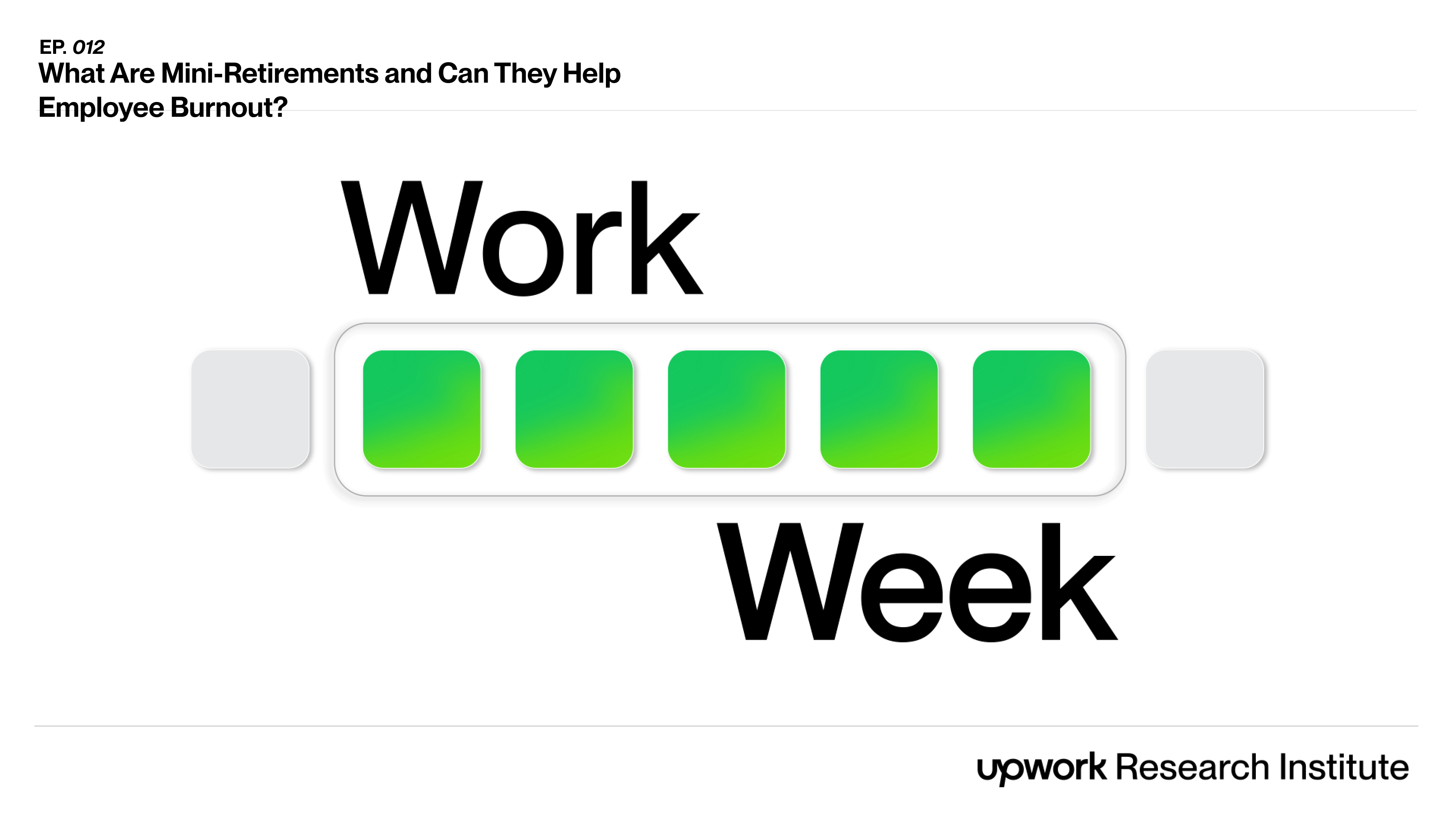


.png)

-p-500.jpg.png)
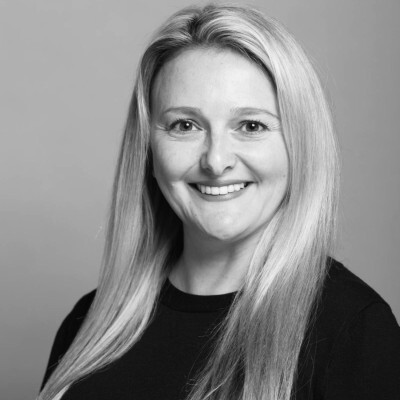
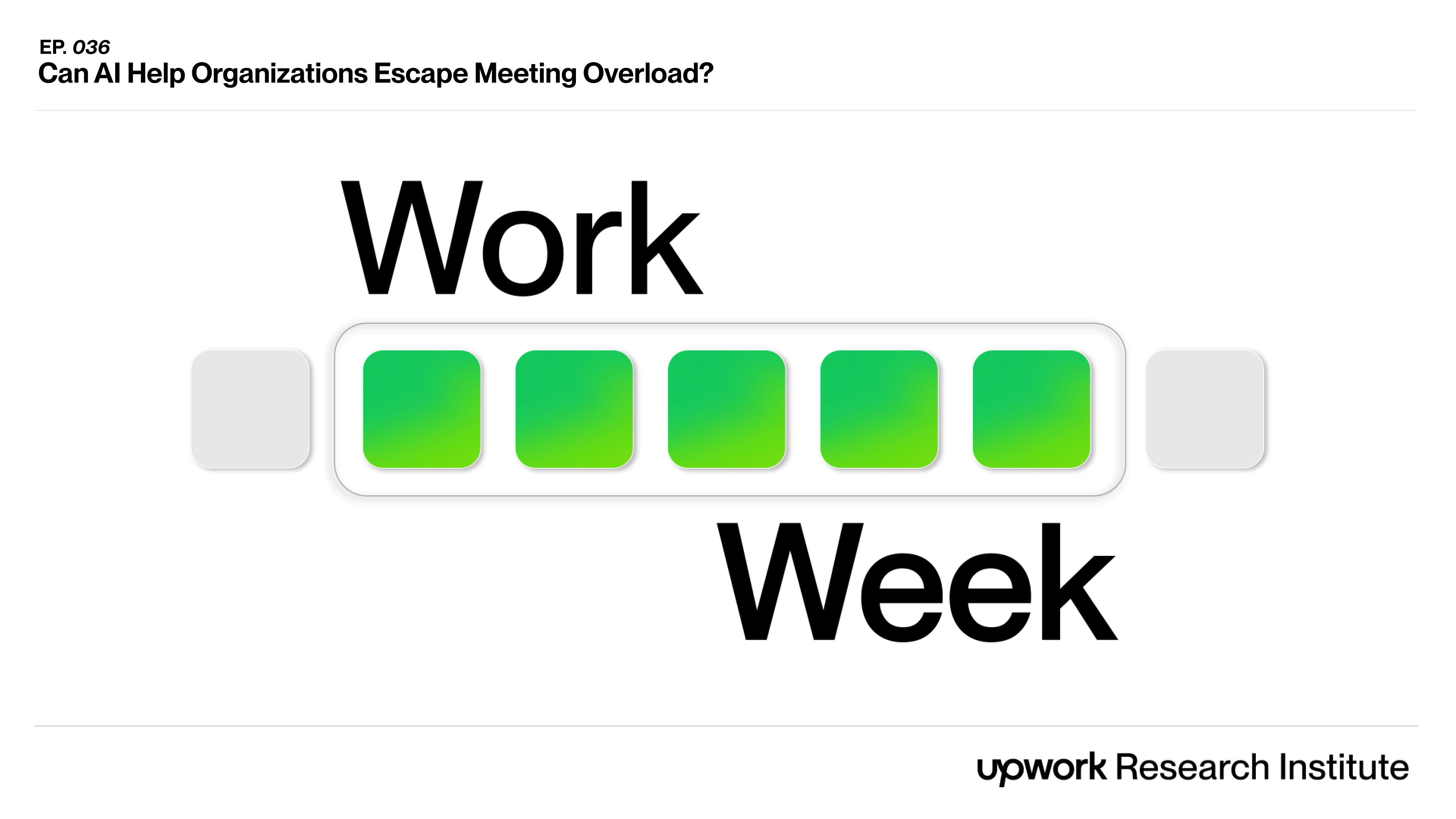

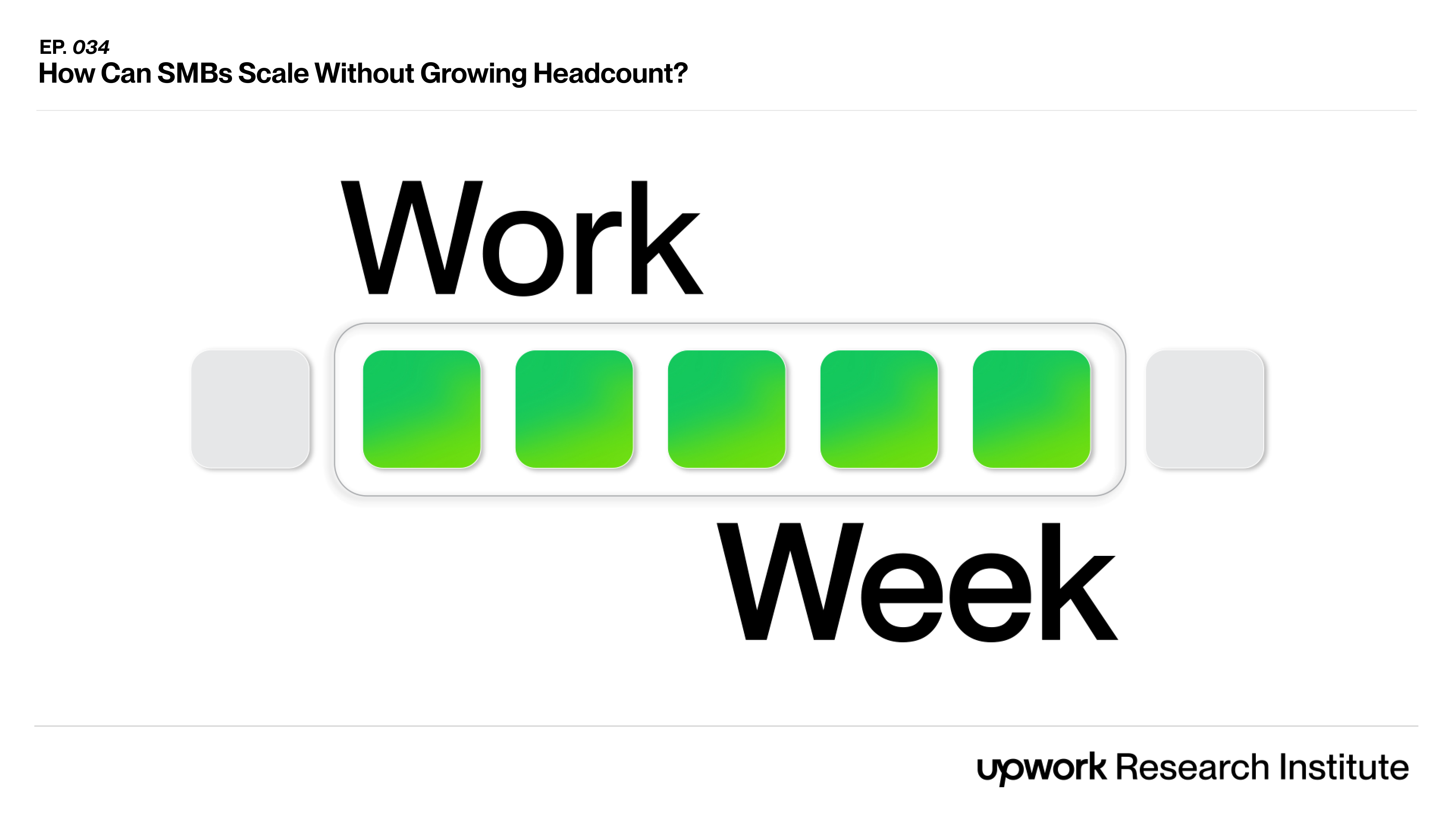
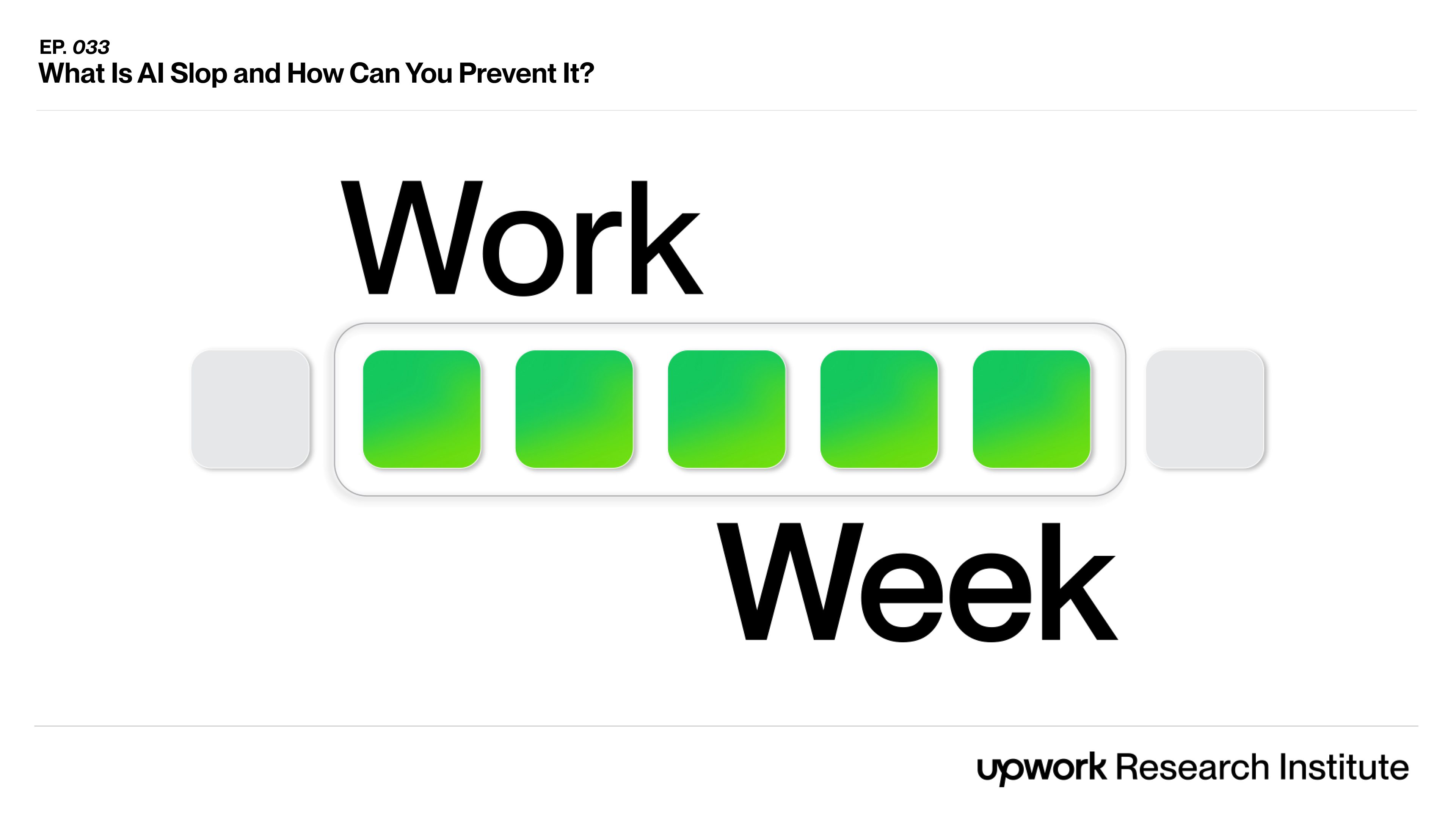
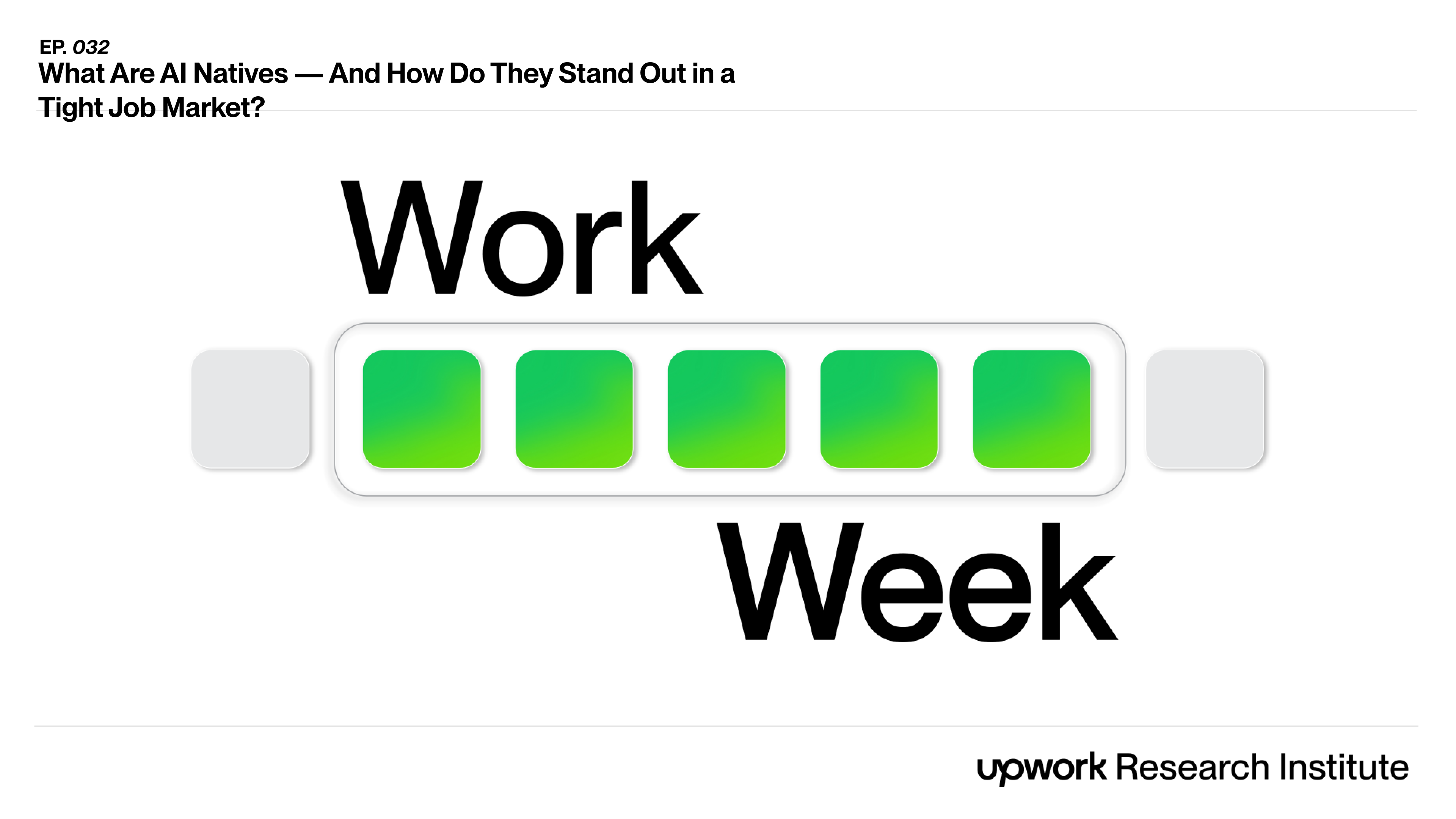
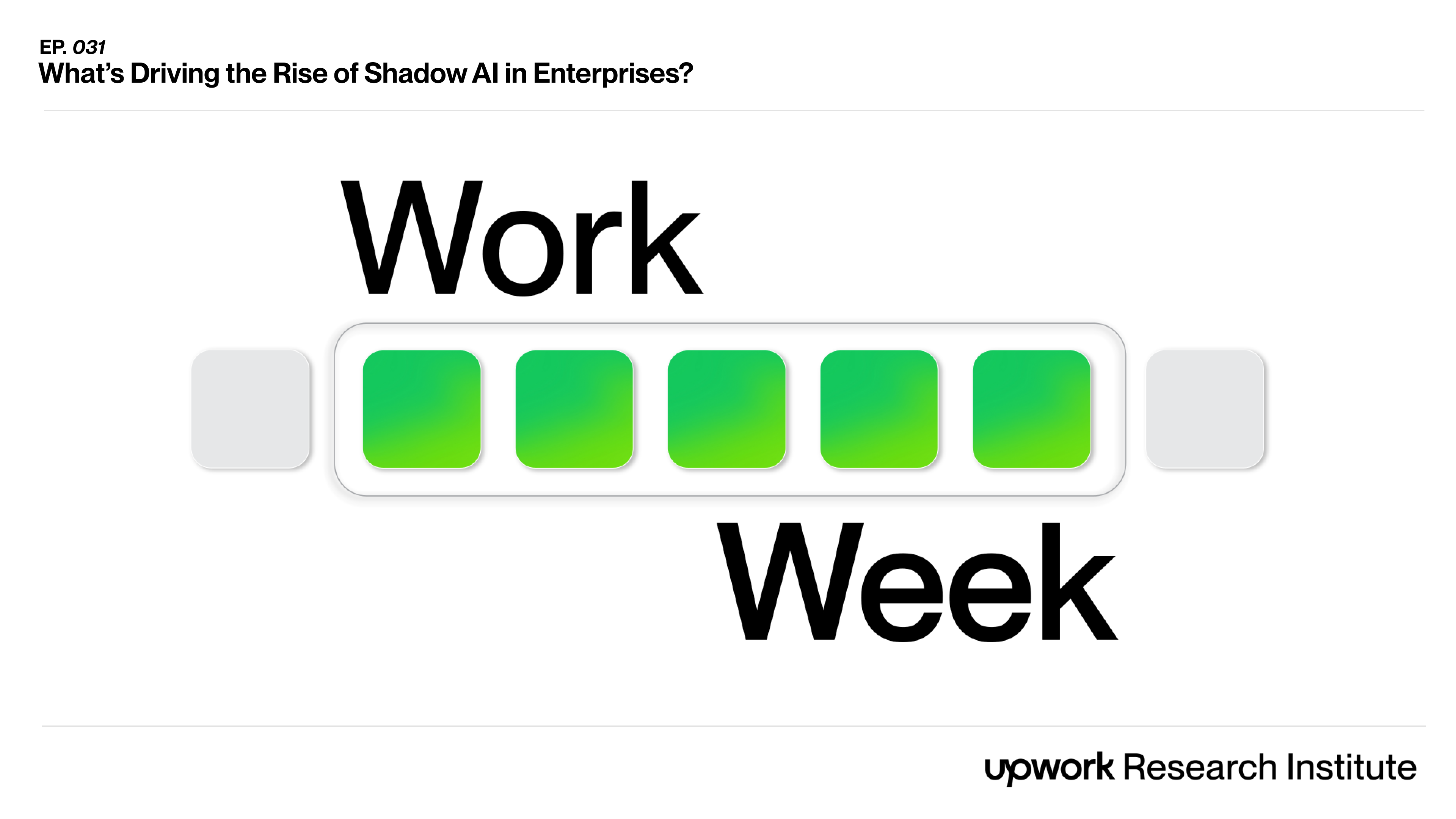
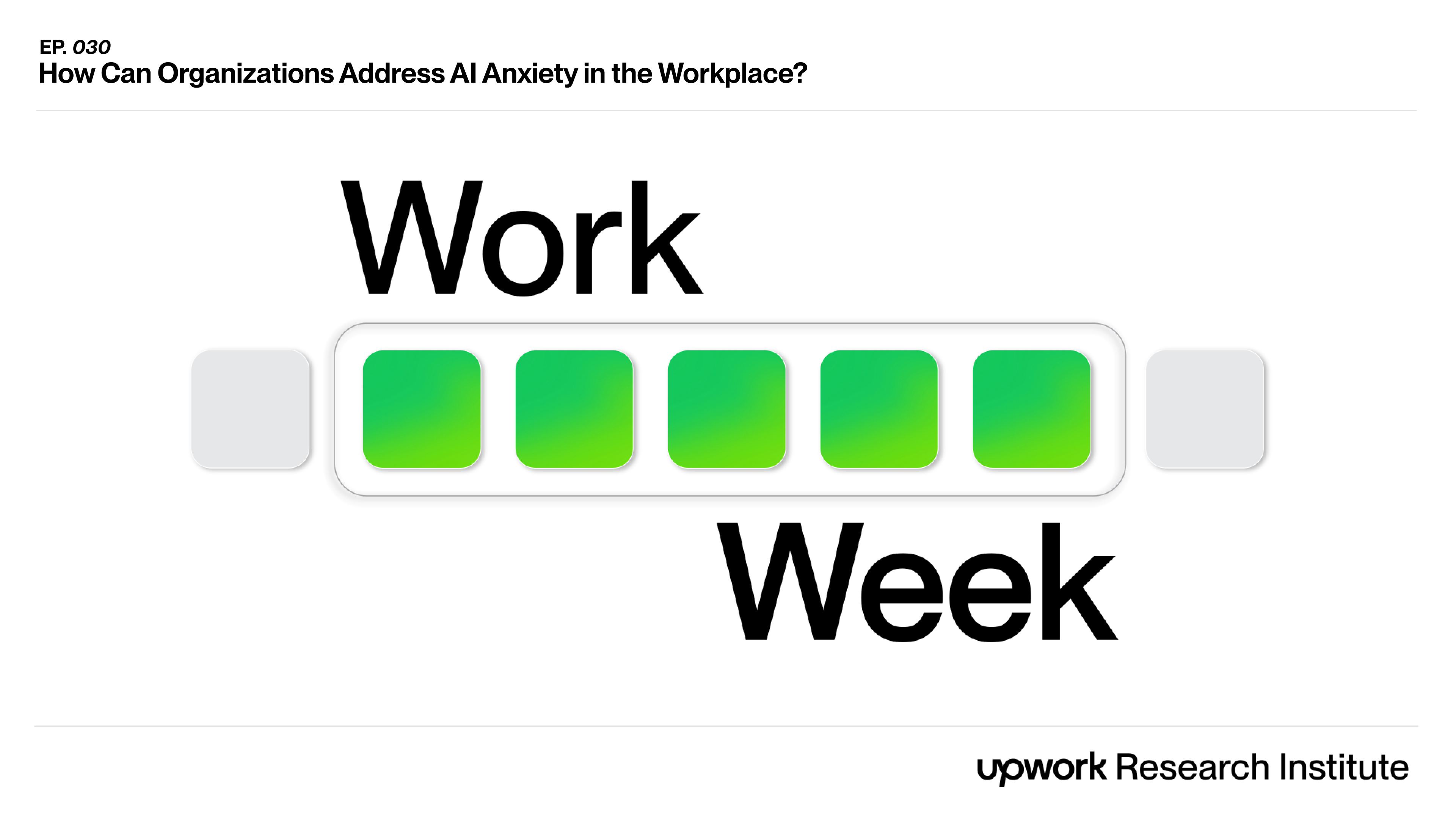
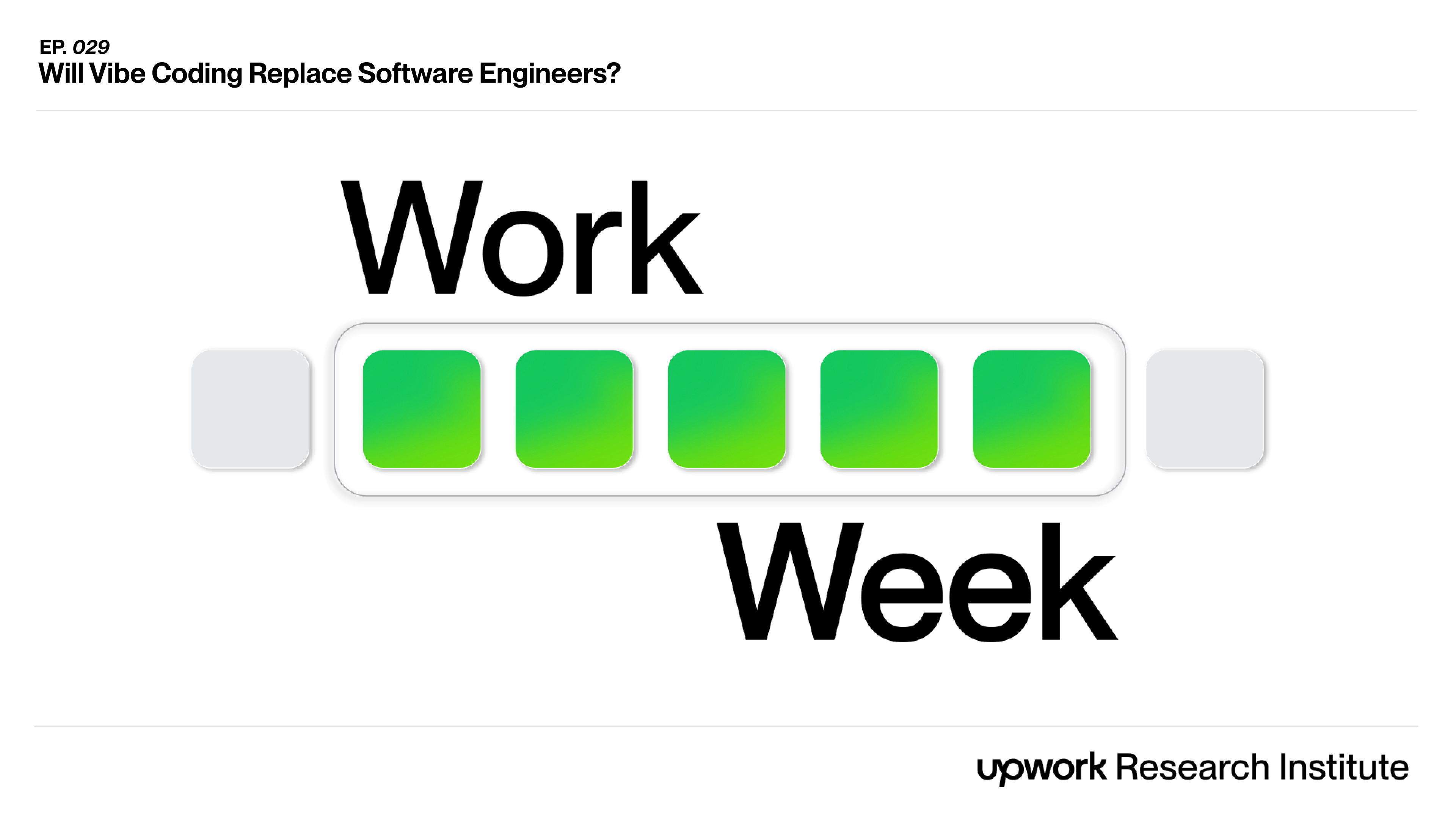
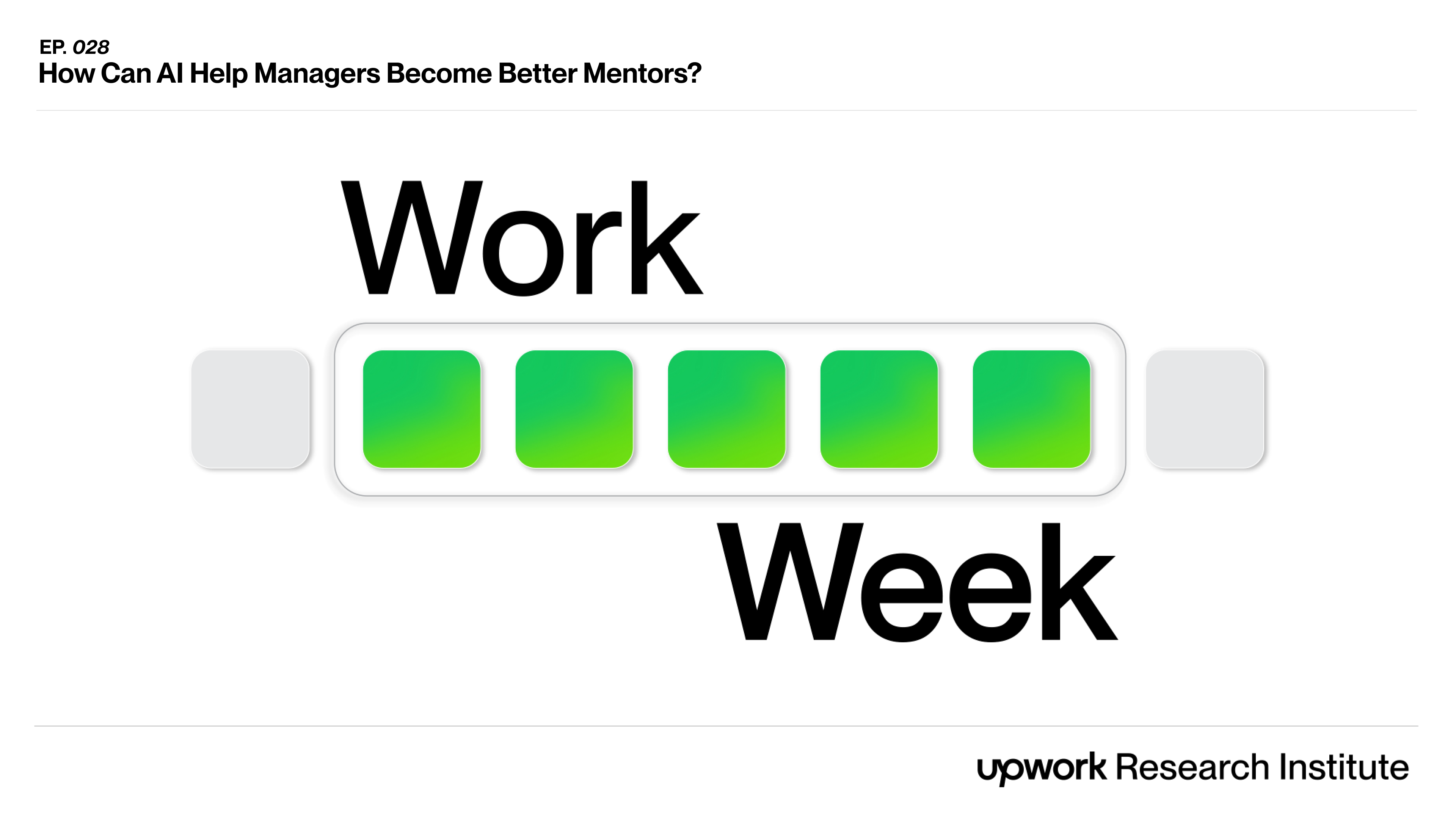

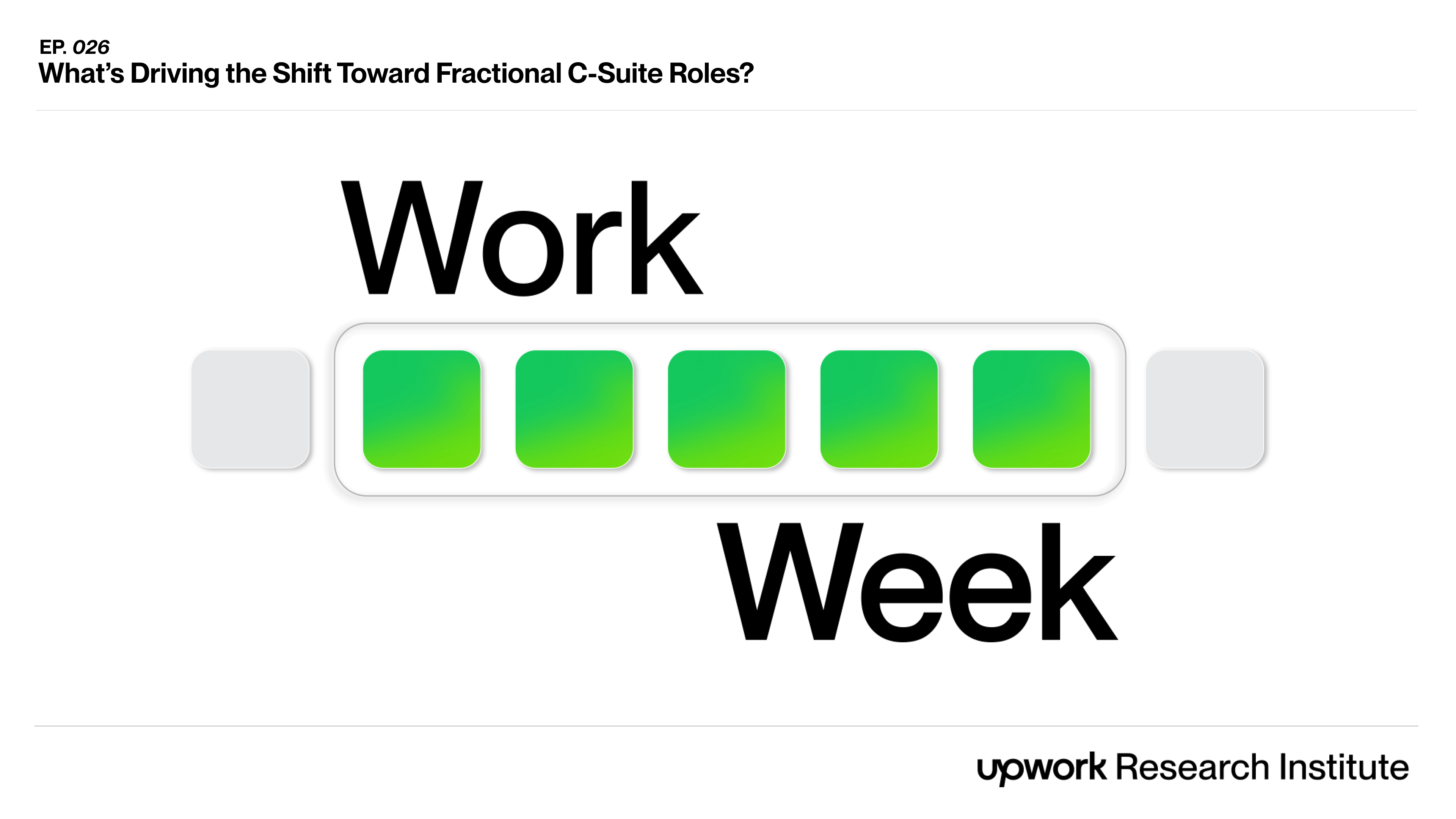
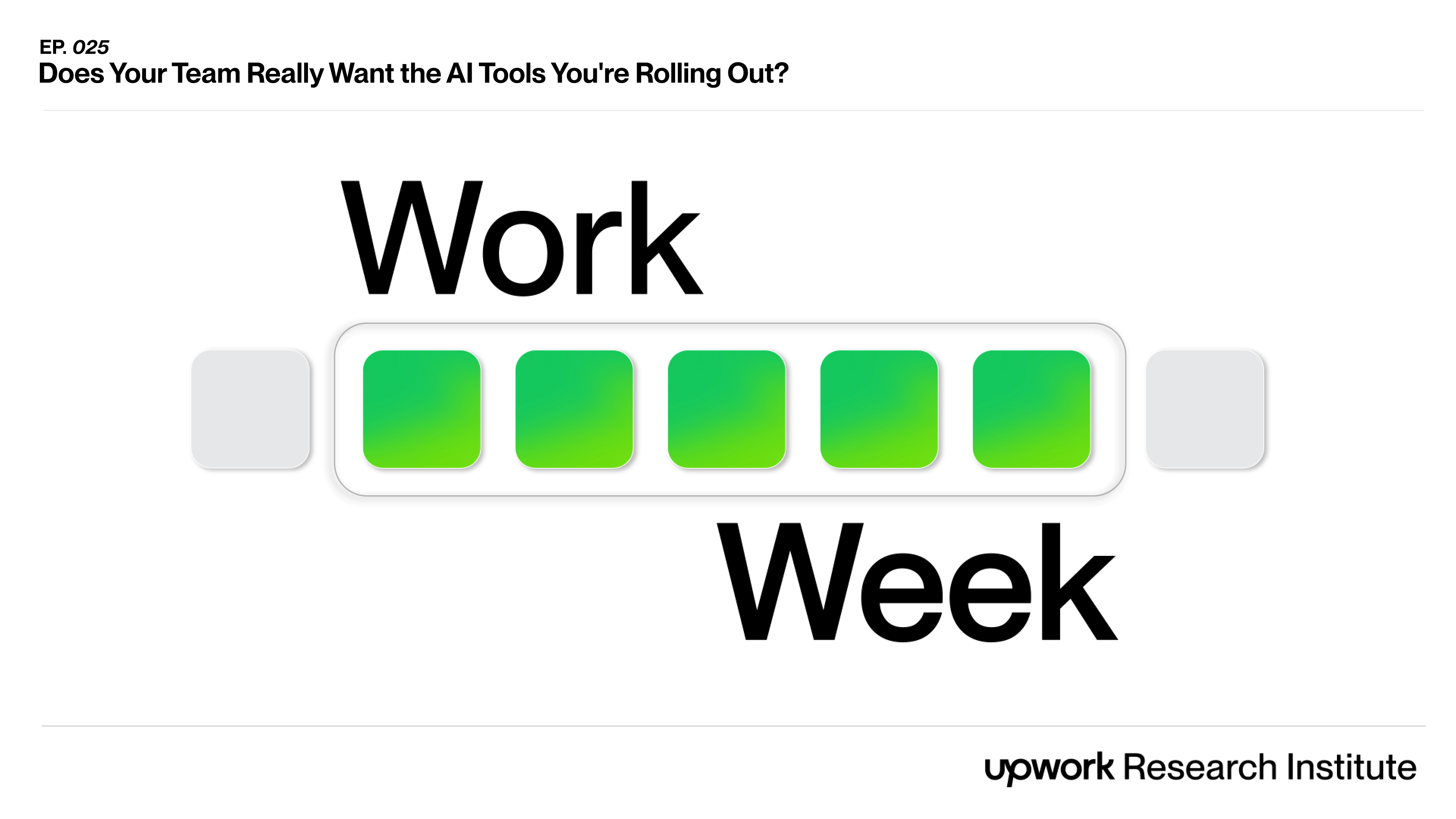
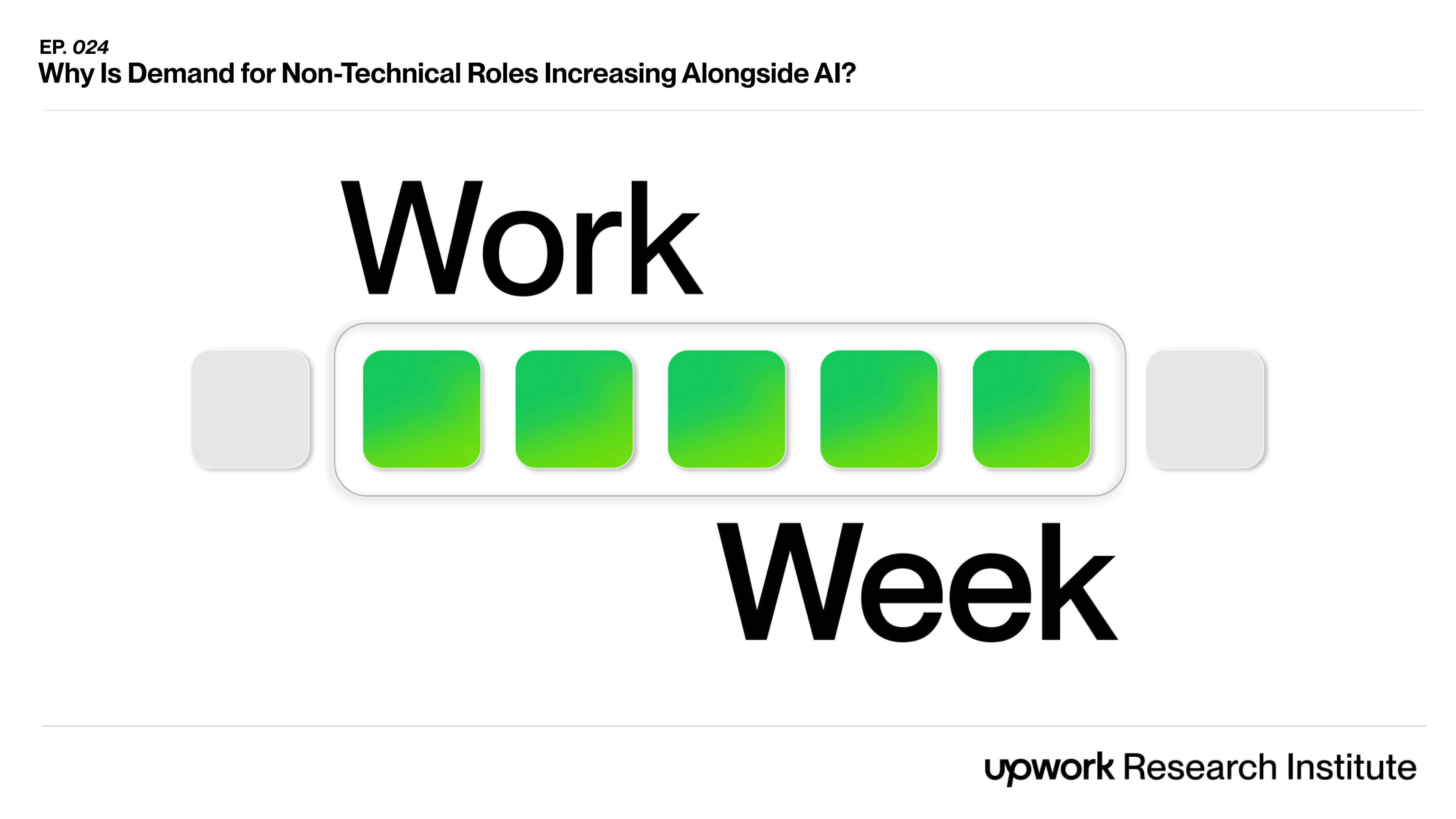
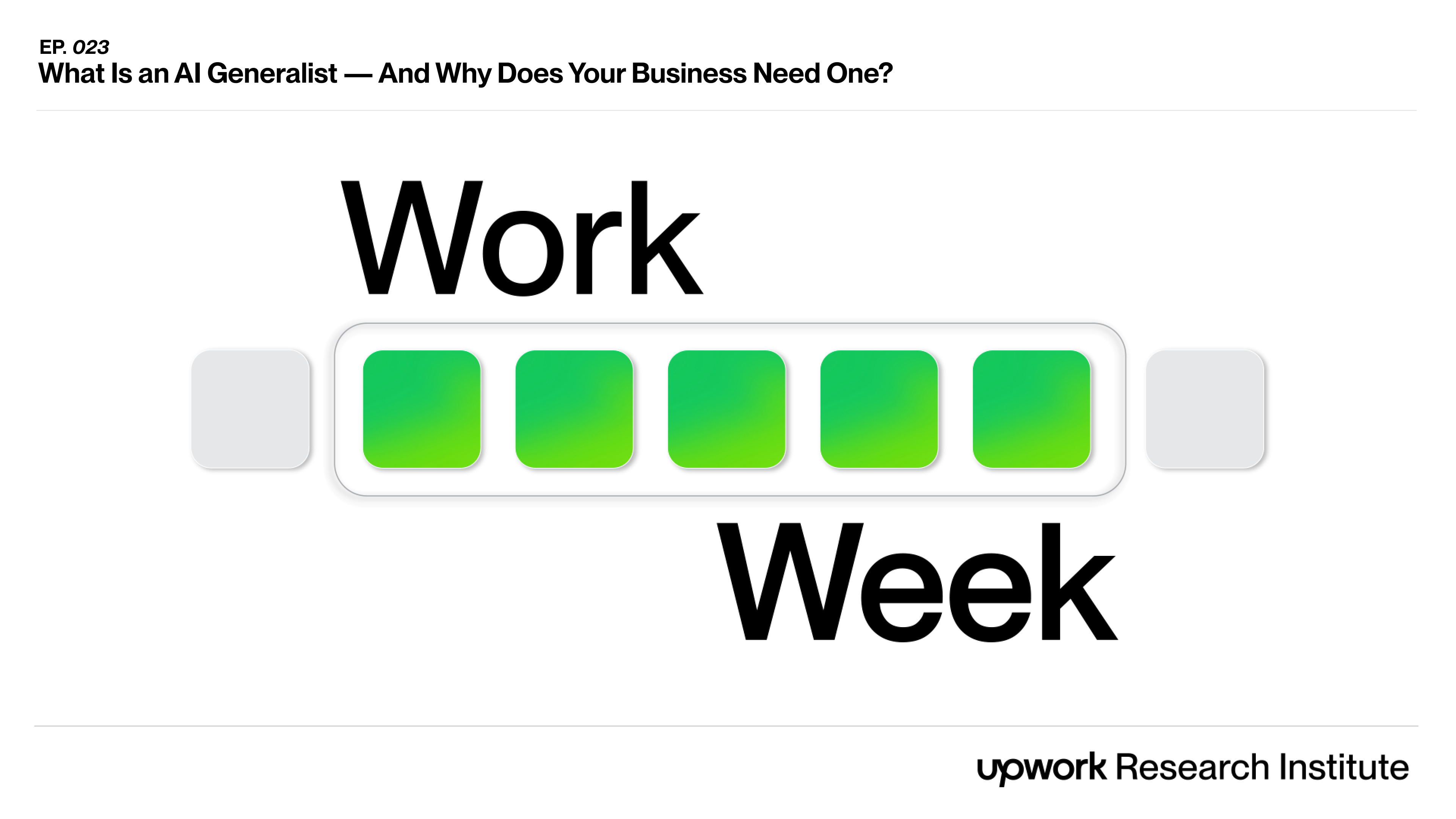
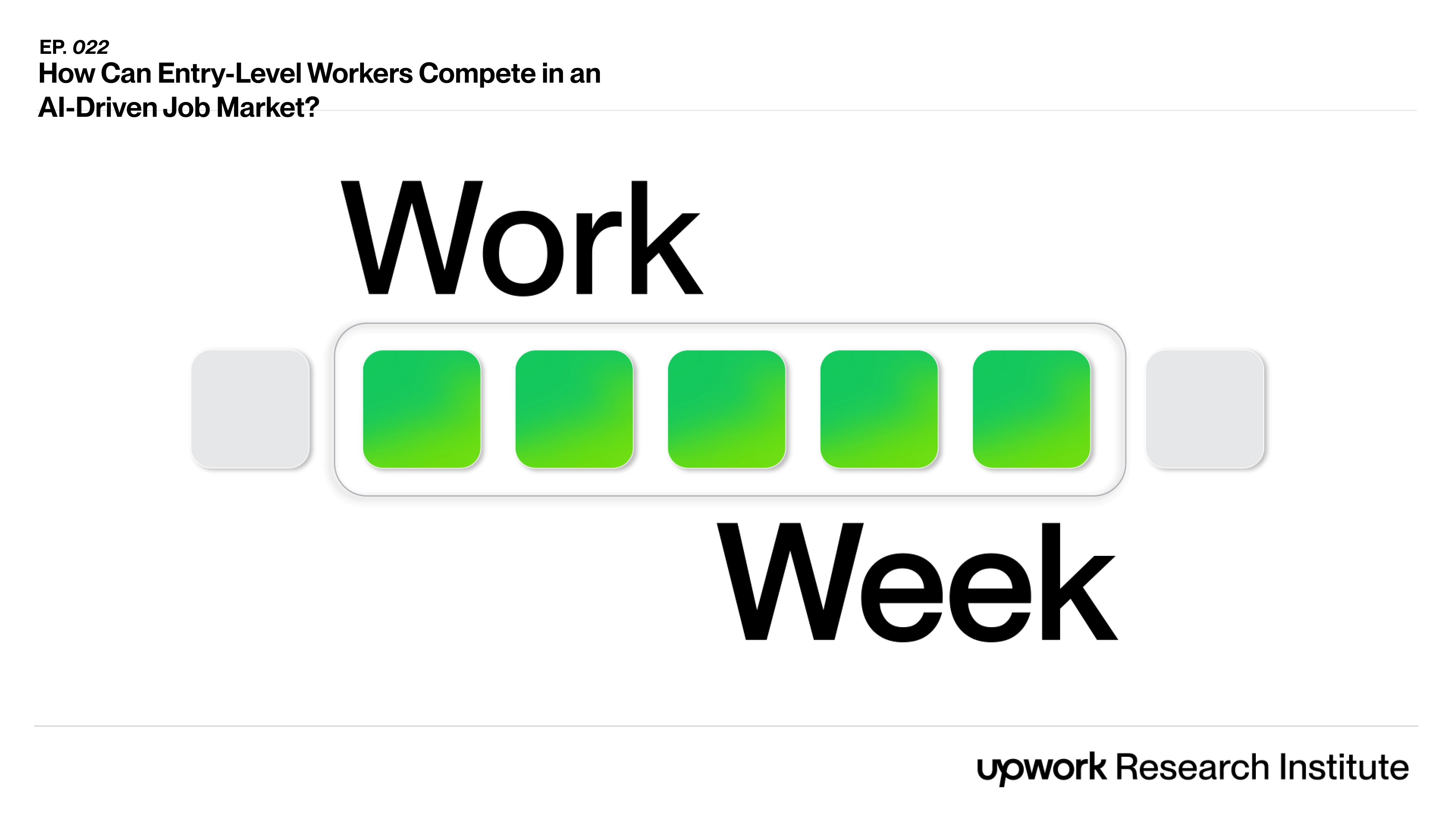

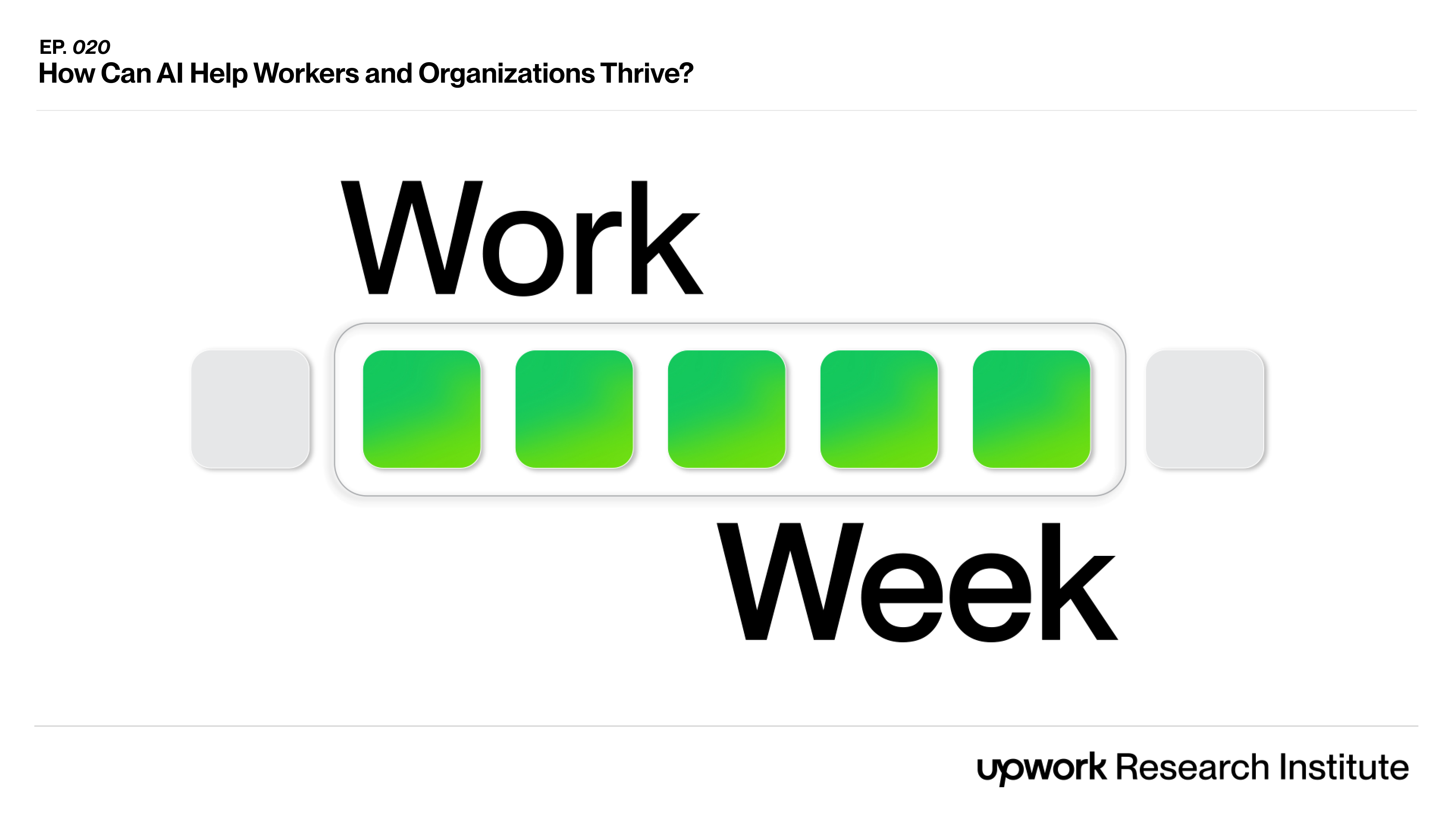
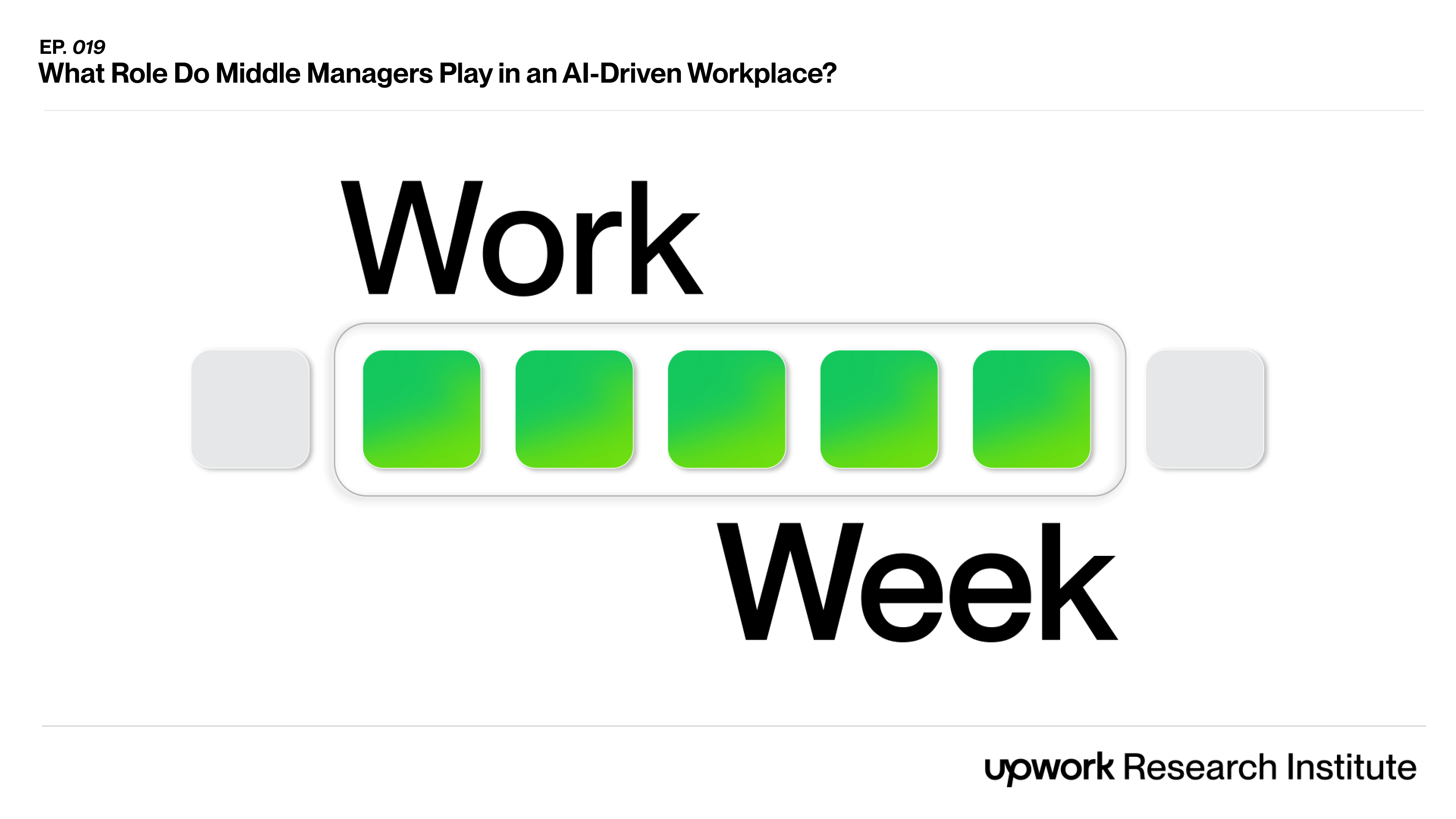
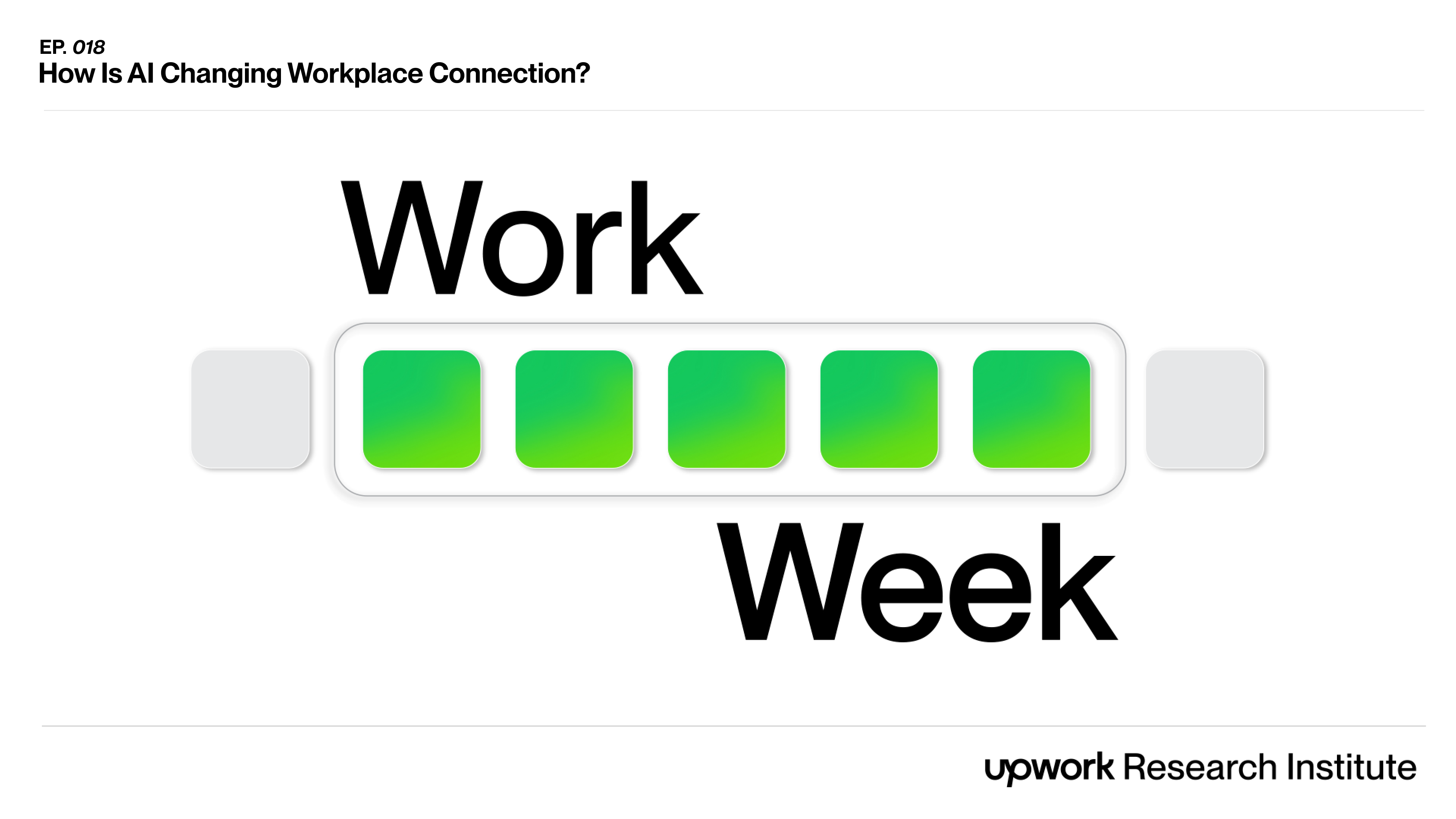

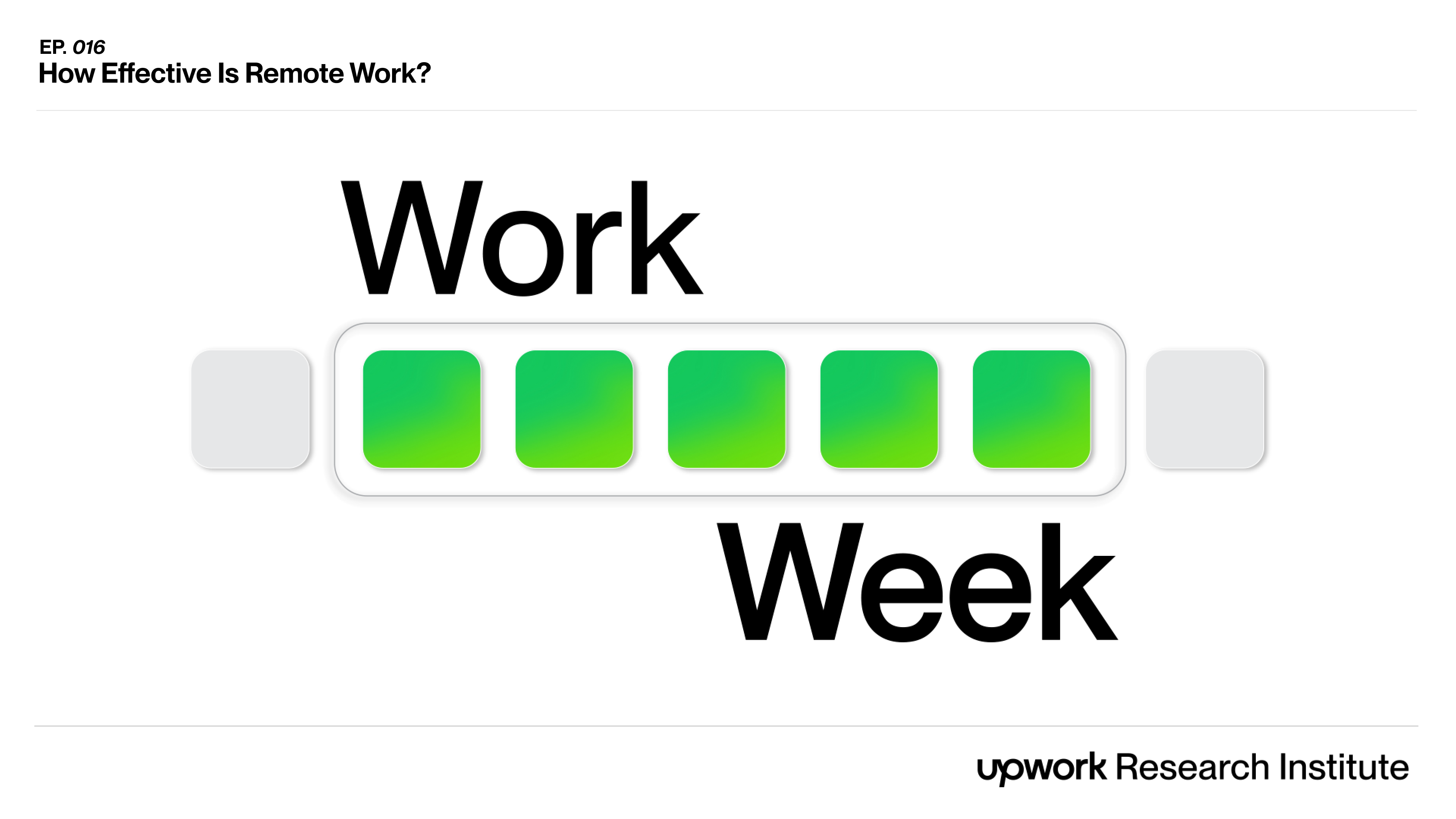
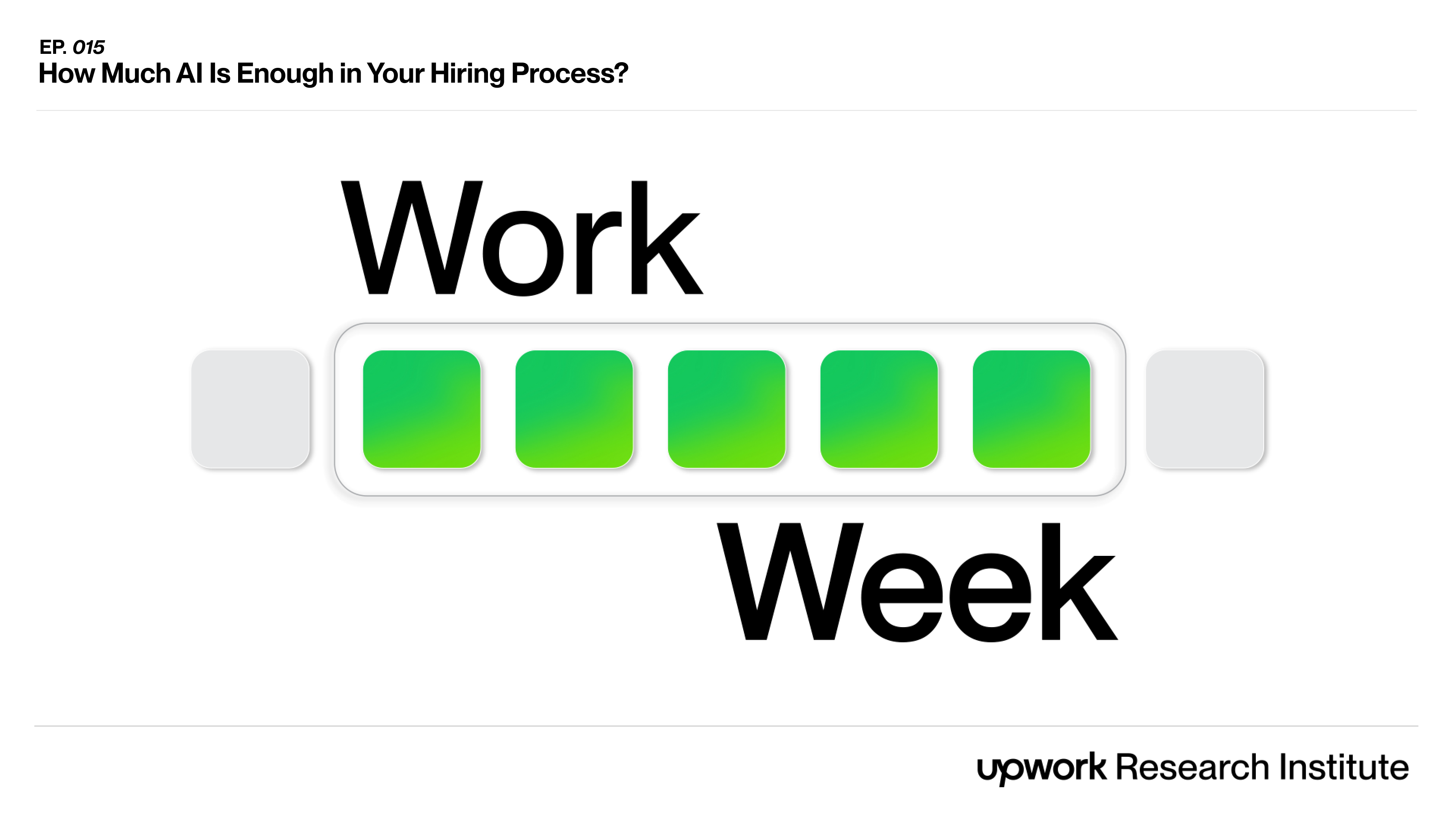

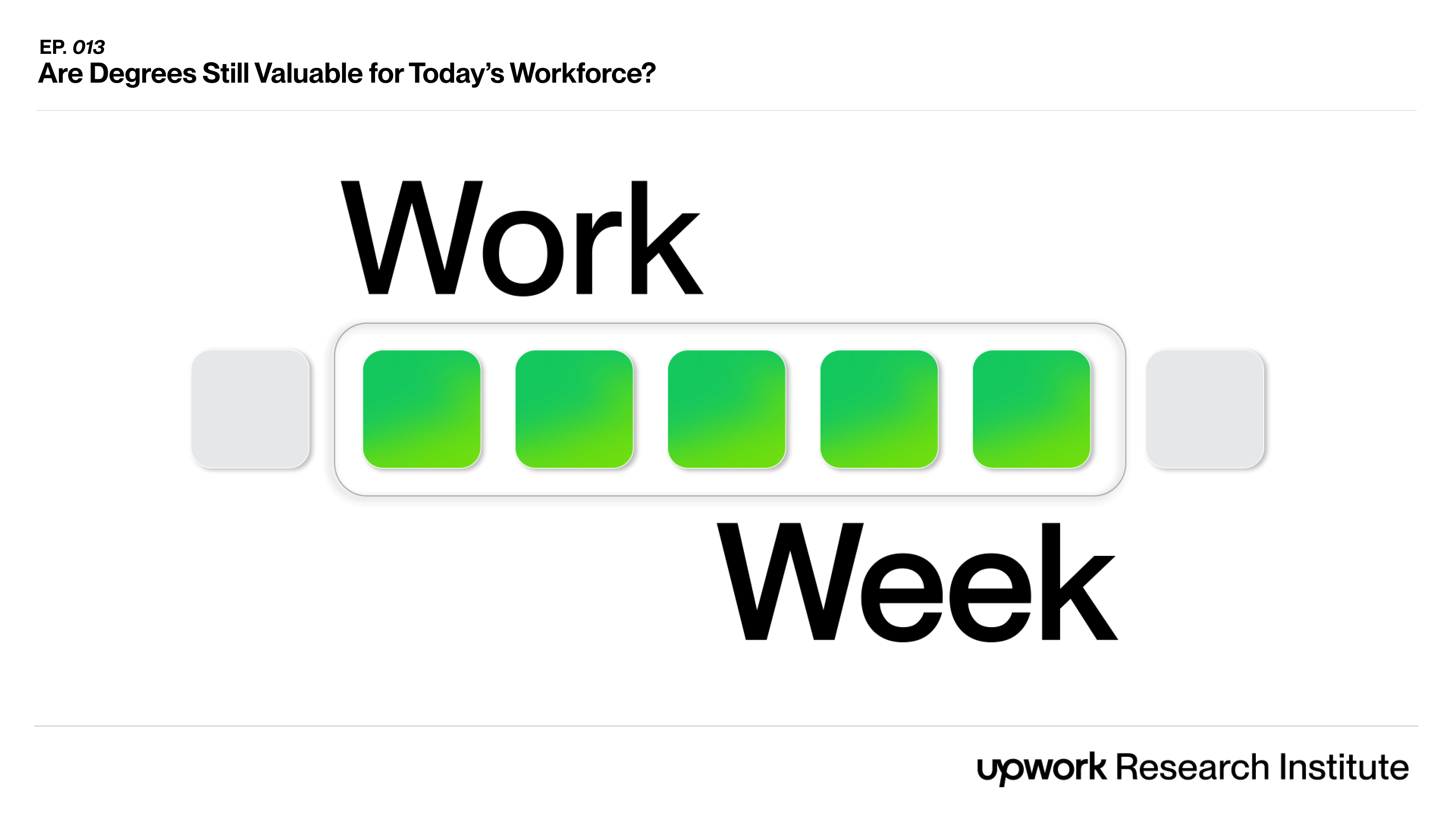
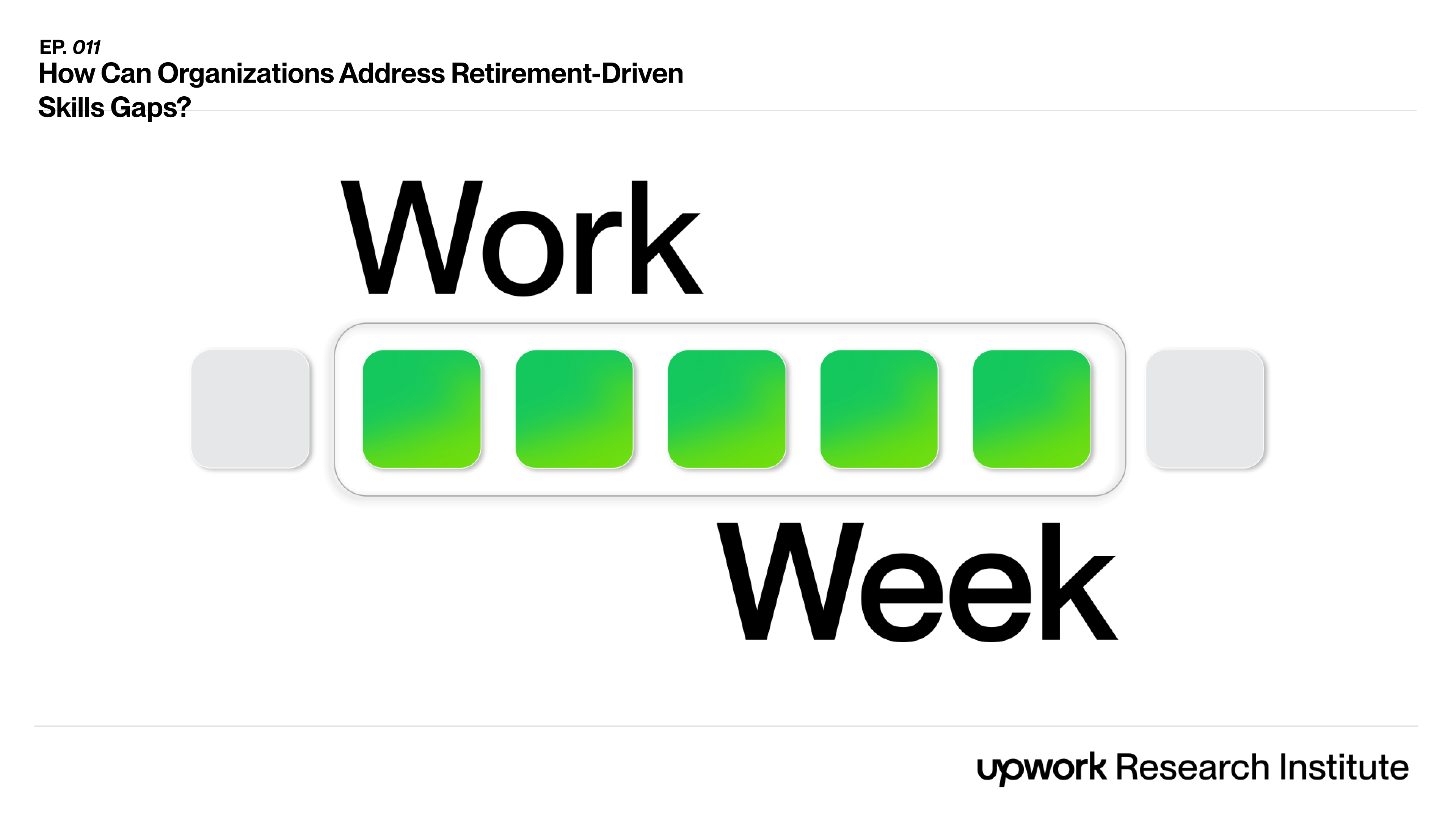
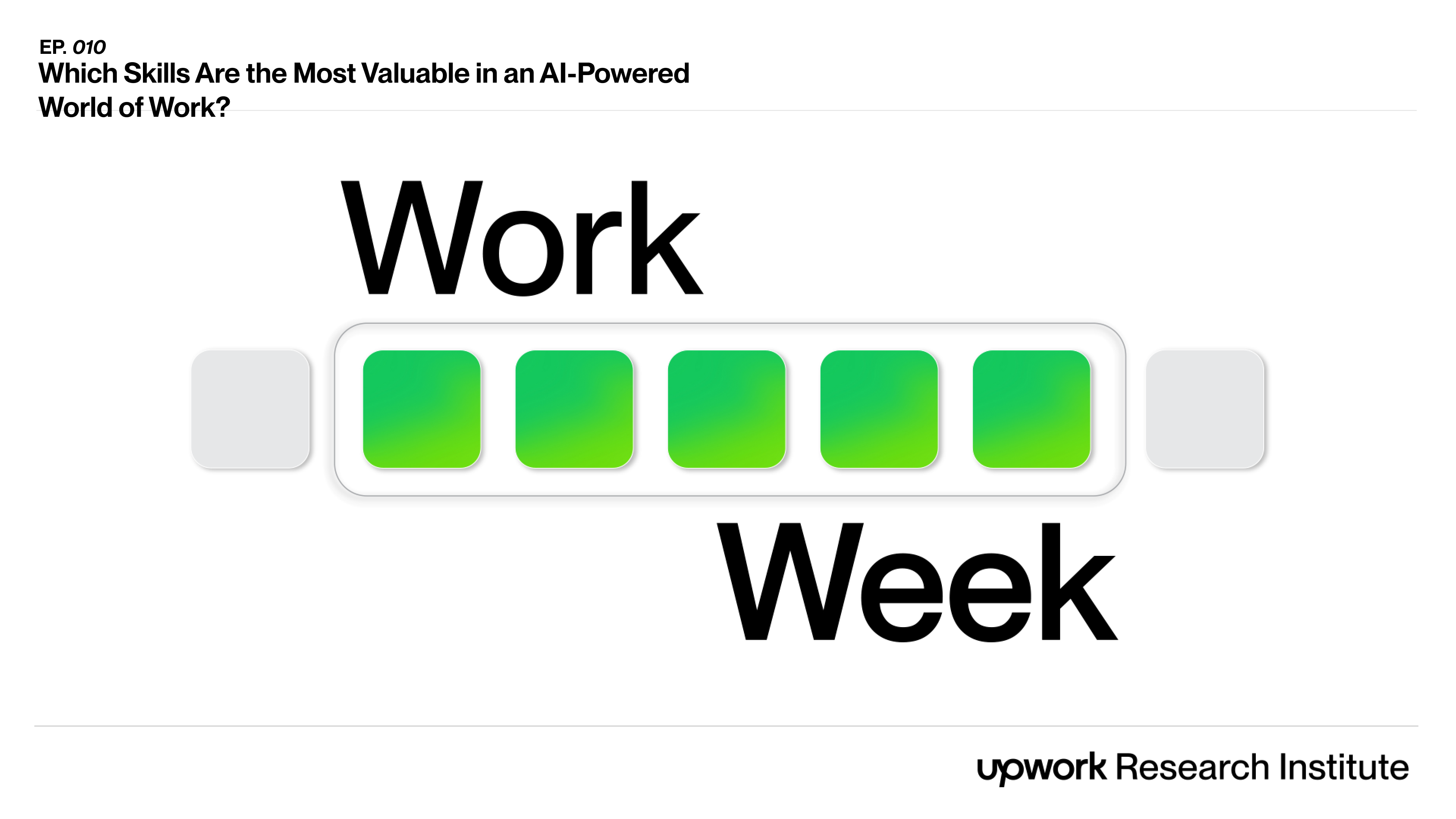
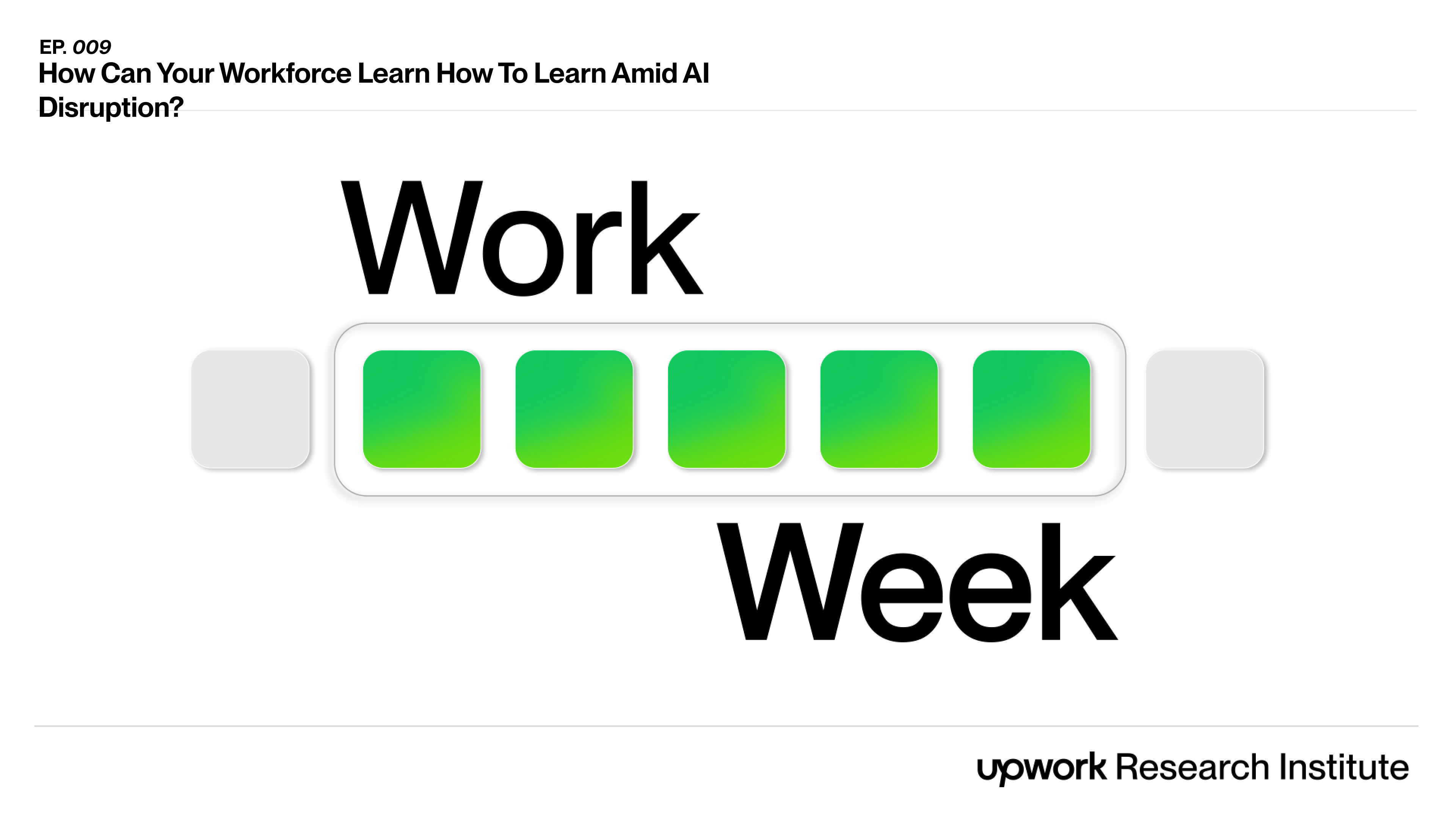
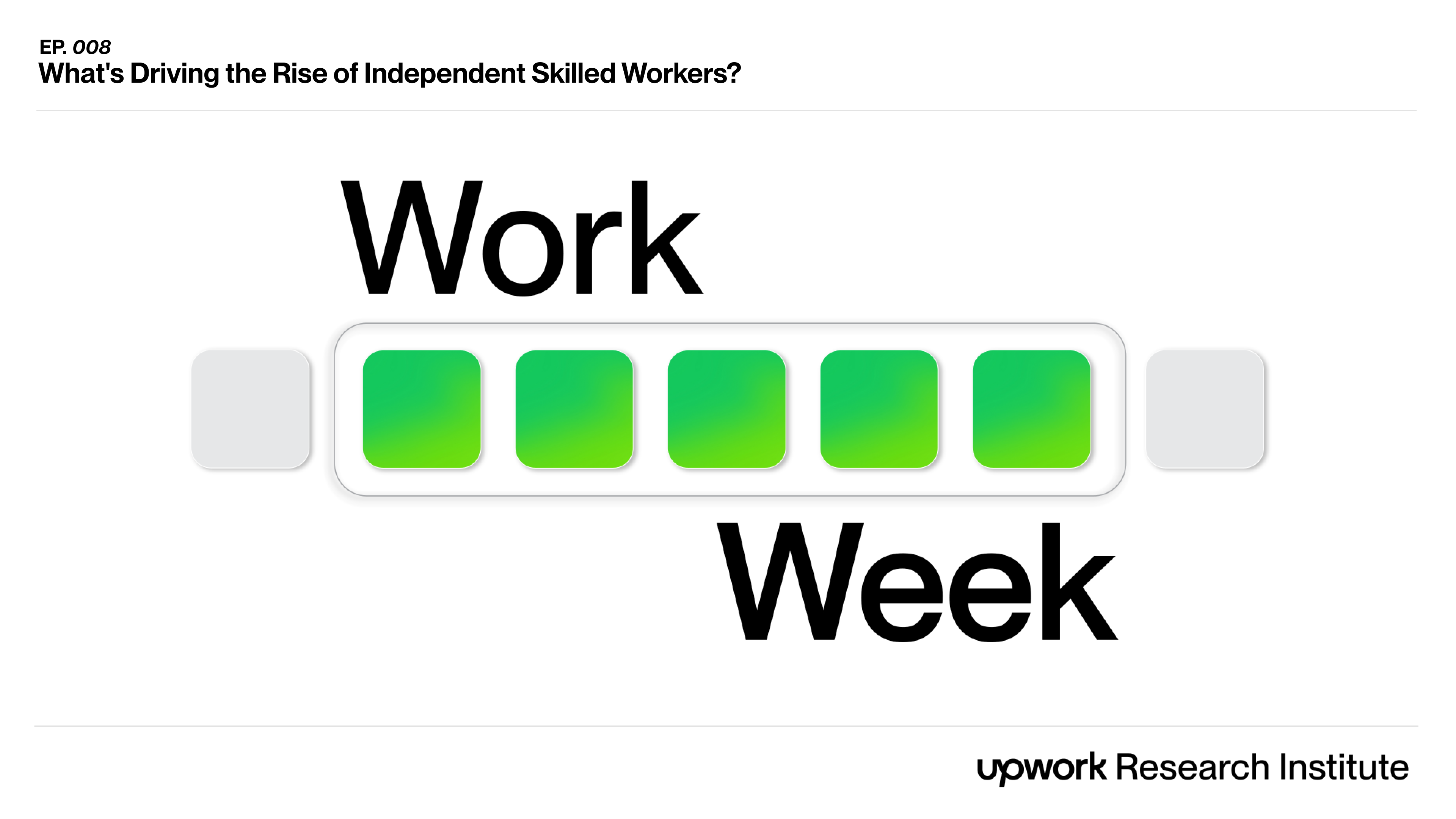
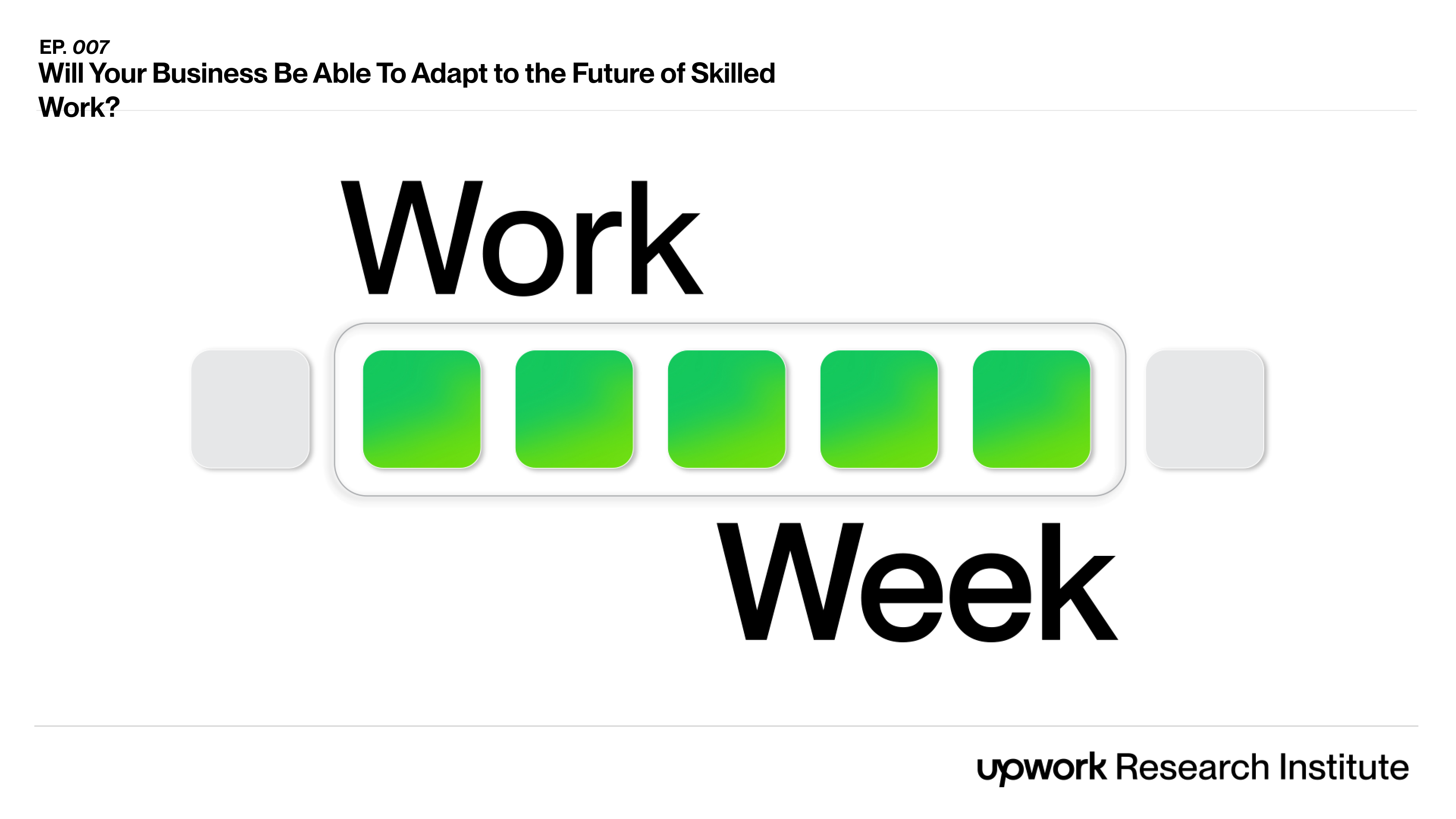
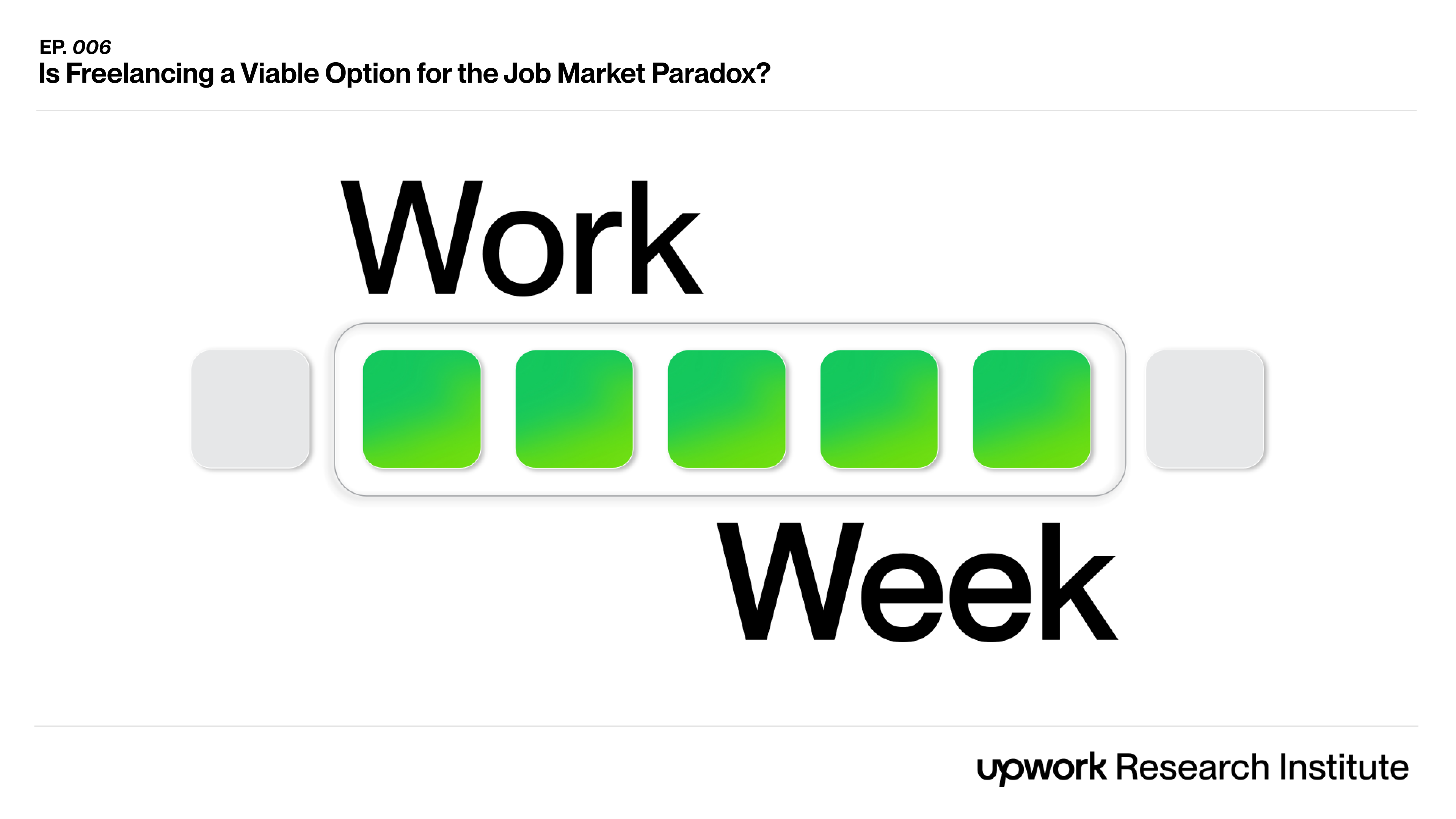
.png)
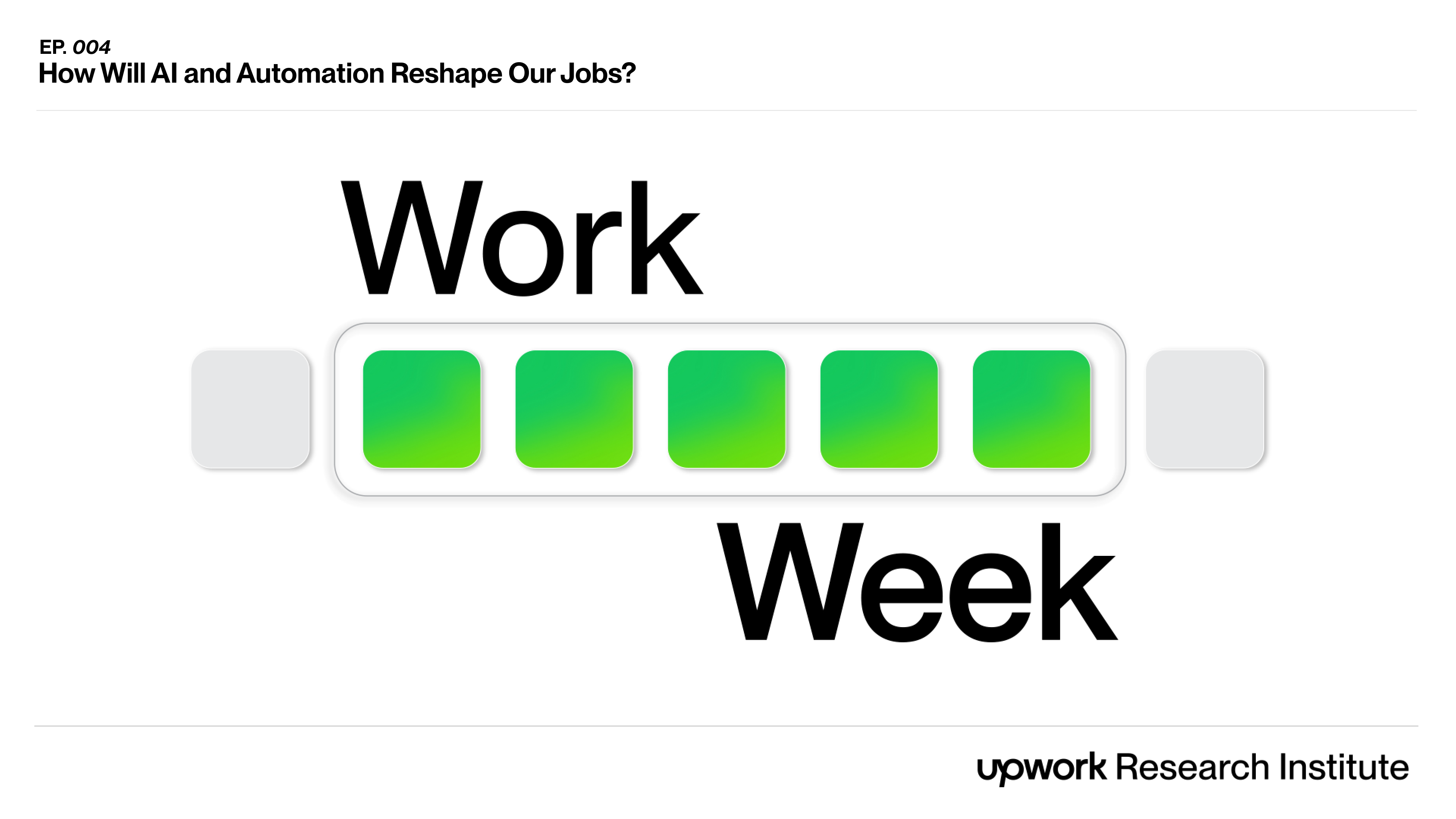

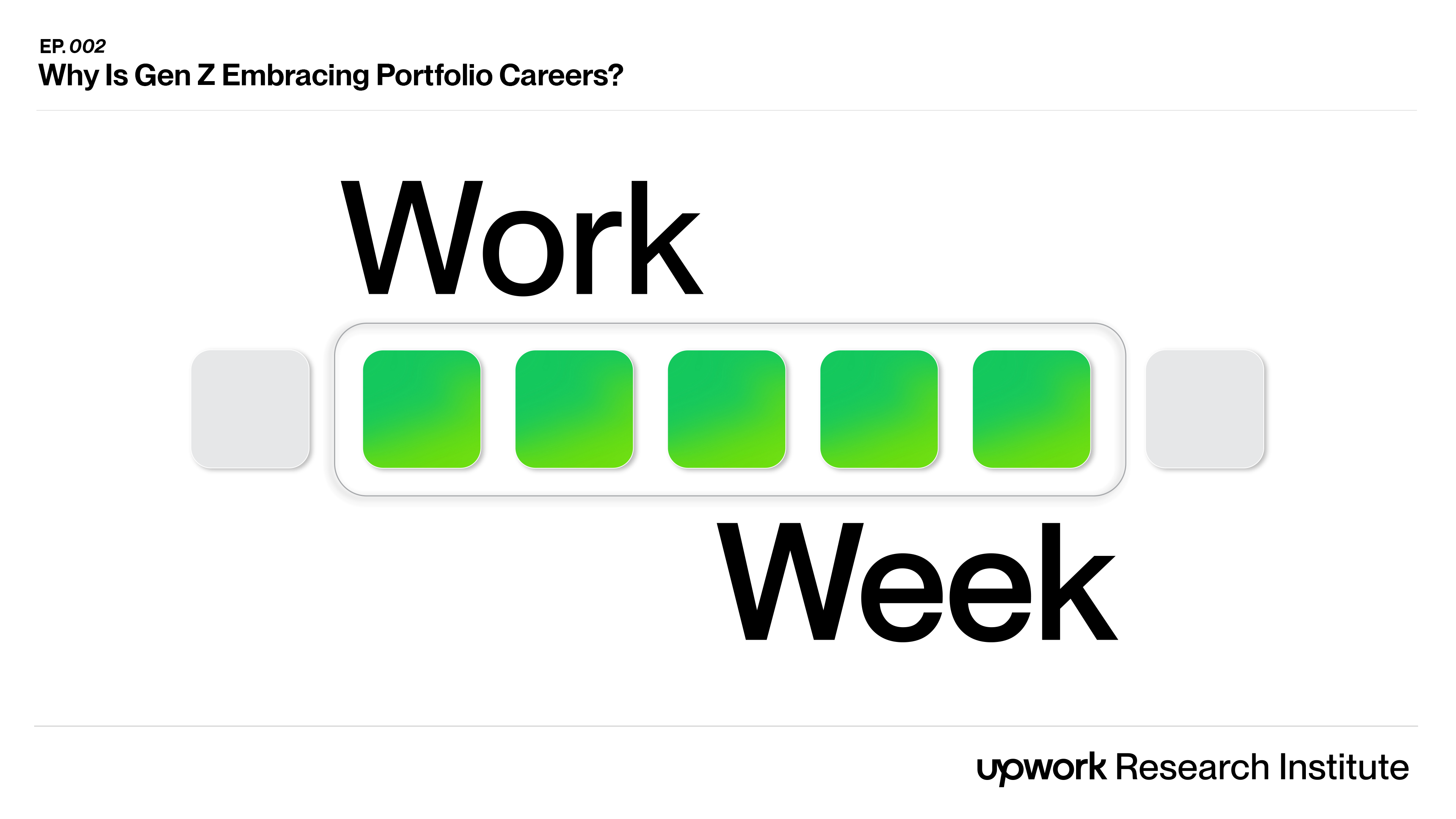
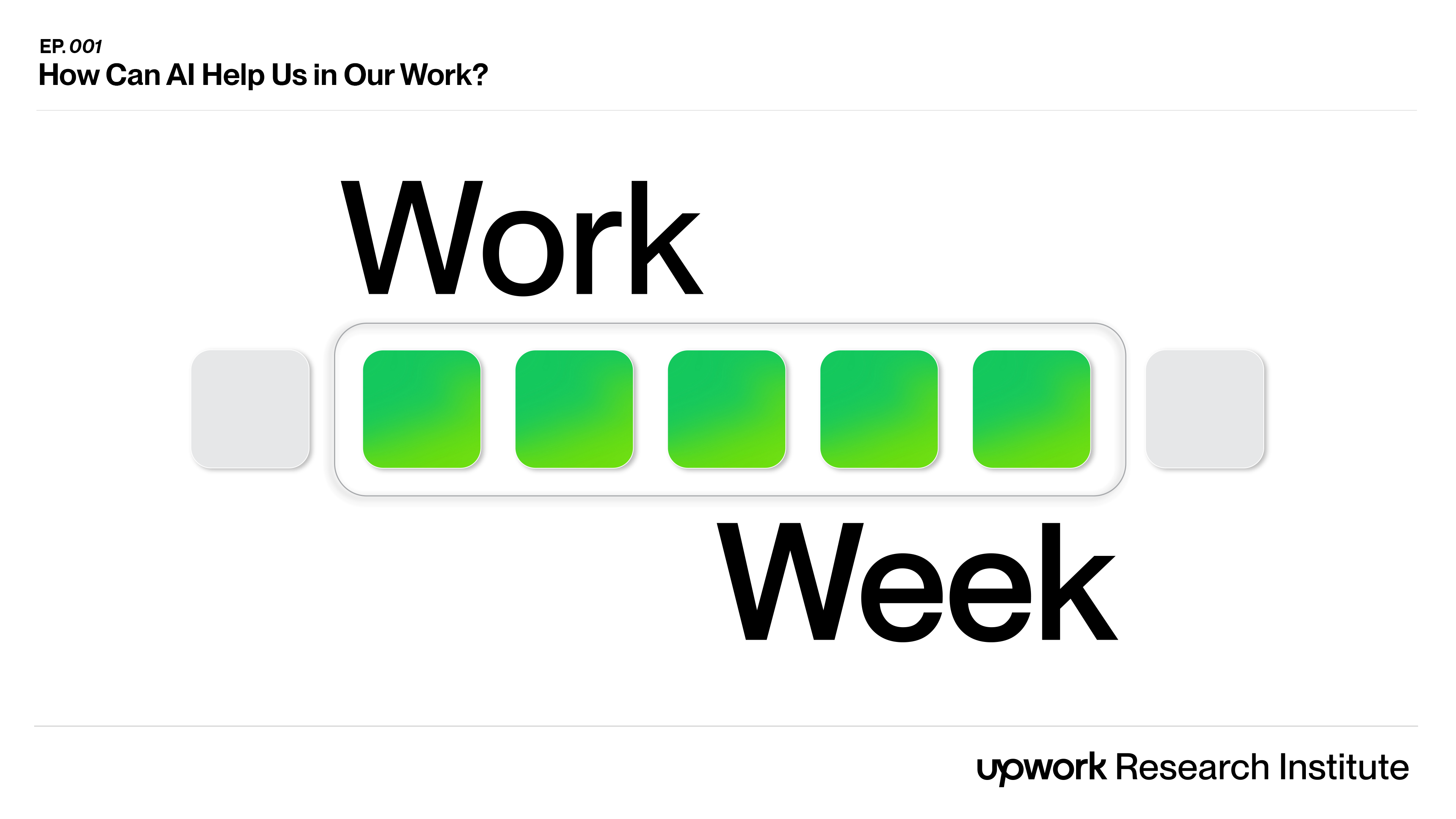
.jpg)